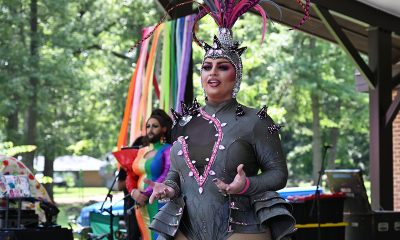Arts & Entertainment
Drag families support new queens, but D.C. needs more space for young performers
With steep competition, young talent turns to social media for exposure
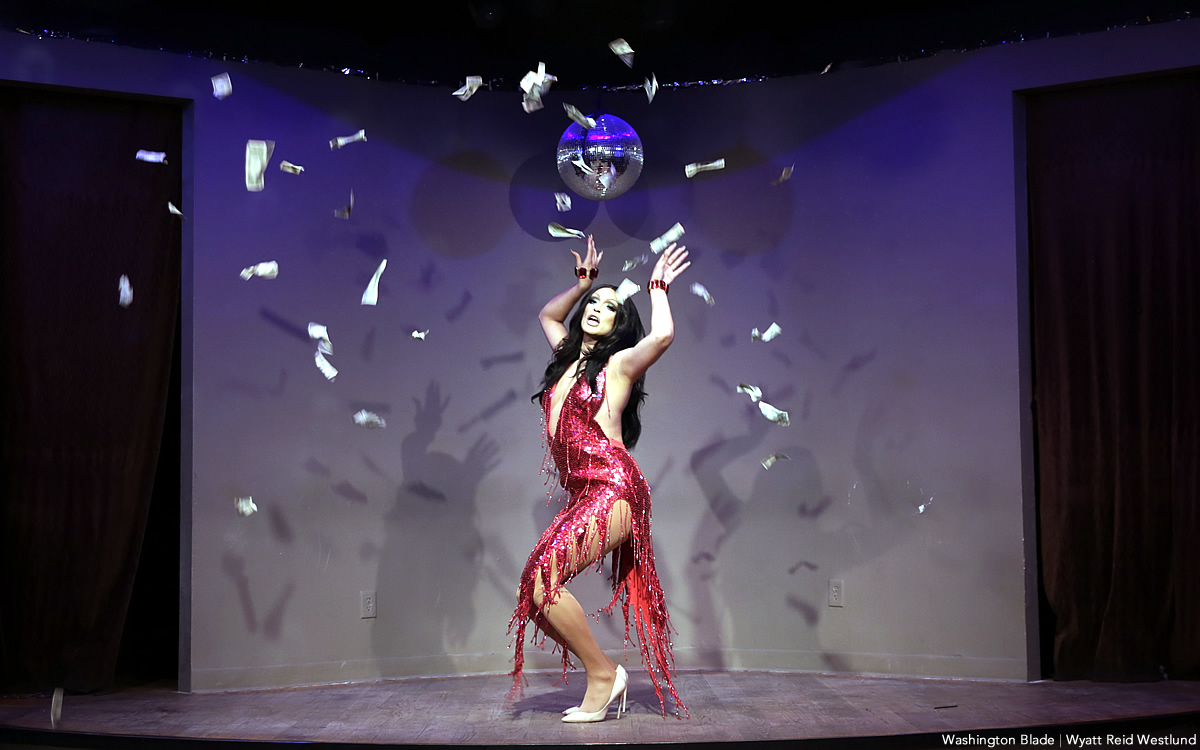
In a sparkling gold dress with a high-cut bodysuit and fringe draped over her hipline, D.C. drag queen Anamosity rang in the new year with a high-energy performance that carried her off stage and closer to the audience.
Hollers and cheers from the crowd punctuated her fierce hair flips and striking hand gestures as the rookie queen aimed to impress venue hosts, audiences, and other queens to book more gigs in an increasingly competitive D.C. drag scene.
“One of my biggest challenges in drag is just definitely booking gigs,” Anamosity said. “[When I started,] it was difficult not knowing anyone [and] trying to make a name for yourself in the city.”
After a slew of anti-drag legislation was introduced in more than a dozen states, effectively banning performances in public spaces to prohibit minors from watching, anti-drag sentiment has scared some aspiring and veteran queens from participating in the art form. However, as the District experiences its “drag renaissance,” increased competition is challenging new queens trying to book shows.
Until 2018, the popular D.C. drag venue, Town Danceboutique, was the place to get booked for queens trying to make a name for themselves in downtown, LGBTQ nightlife, according to Venus Valhalla, a host at the gay bar Pitcher’s weekly drag show. But when the club closed, queens scrambled to any bar that would let them start new shows.
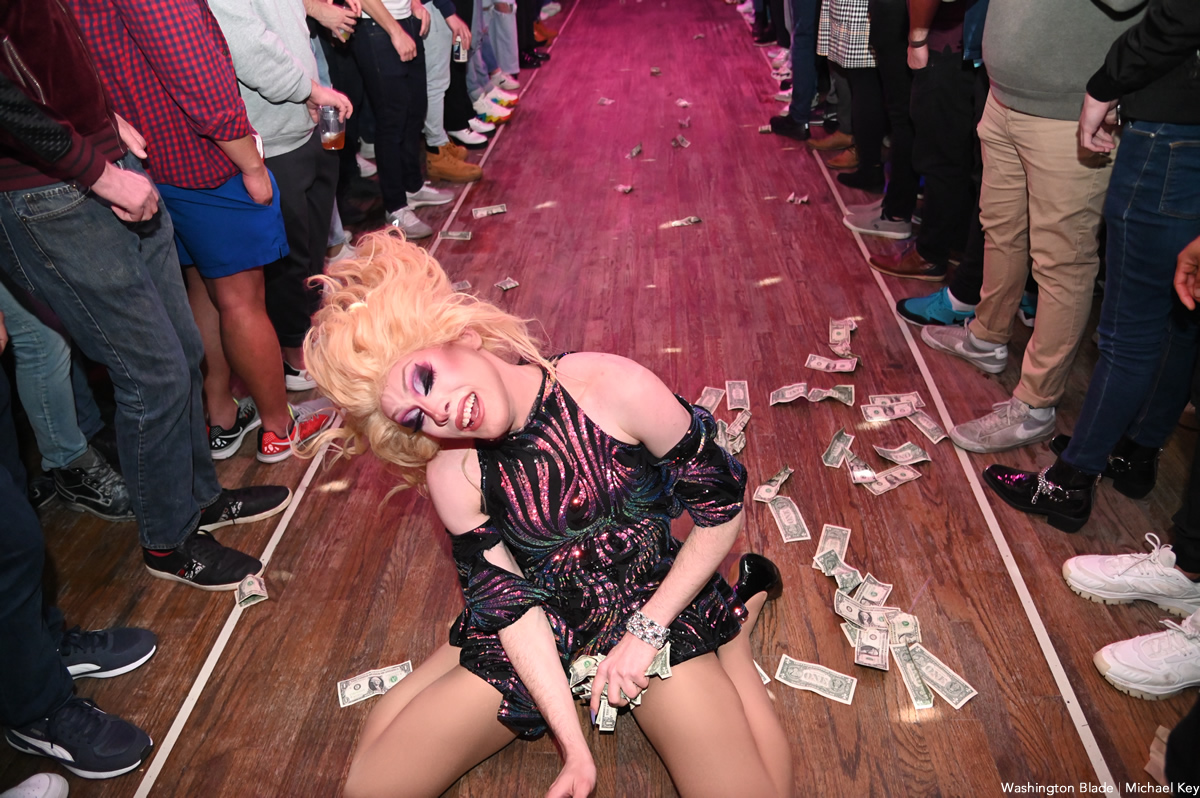
When the COVID-19 pandemic hit, entertainers held onto any shows they started and venues they secured. Then, as restaurants and bars reopened, the surge of opportunities led to heightened competition between veteran queens with networks ripe for booking and new queens vying for a chance to prove themselves, Anamosity added.
“The drag queens that want to do drag or are doing drag full time just end up getting more priority,” Animosity said. “It’s definitely a battle trying to get your name out there and develop connections in order to become part of the other [half of the entertainers] that can’t afford to do drag full time, but still want to be out and performing.”
For some queens, having a drag family is the connection that gets them on stage, according to Hennessey, whose drag family consists of a drag mother, drag sisters – including Anamosity – and a drag grandmother. These connections with veteran queens help newer entertainers book shows at venues that require a certain level of professionalism and performance quality.
These beyond-blood family networks also provide emotional and financial support to queens outside of drag, Hennessey noted. Sometimes this comes in the form of housing, but oftentimes, it’s seen through sharing costumes, wigs, and heels.
But between Drag Queen Story Hours and 21-plus night shows, there’s a gap in opportunities for young adults wanting to start in drag. While some family or 18-plus drag brunches offer more chances for young aspiring queens to perform, the digital drag sphere is presenting new ways for youth to find their drag community.
“Bedroom queens” performing from home are building their brand, portfolio, and following on social media platforms like Instagram and Tik Tok. Since younger and newer queens aren’t usually booking multiple shows a week because of high competition, they’re spending time shooting and editing content that advertises their talent.
Social media also supports the exposure and representation of queens who either aren’t ready to perform in front of an audience yet or struggle to find shows.
“There are a lot of Black drag queens in the city, I think that I don’t see them getting as many bookings as queens of other races,” Anamosity said. “I’m grateful for every booking that comes my way. But with the number of people of color in D.C., I just don’t think I see them much on flyers, so their online presence is great.”
These virtual networks also mean younger queens can build digital drag families from around the world, Hennessey added. However, there are still opportunities for D.C.’s drag scene to create spaces for young entertainers.
Last summer, the LGBTQ bar As You Are turned its venue into a cafe to host a day drag show open to all ages, specifically targeted to people under 24 years old. During the show, young folks filled the audience while others took the stage for the first time.
The drag house Casa Sin Miedo is also creating a safe space for young and emerging artists to grow their network. The house supports transgender and Latinx artists through mentorship that is vital to queer youth, who often don’t find similar role models at home, school, and even in the media.
But there’s no formal process to starting or finding a drag family.
“That’s what is the most beautiful part about it,” Hennessey said. “If you want to start your own family, you can really just do it. You just need one other person, and then you suddenly have a drag family.”
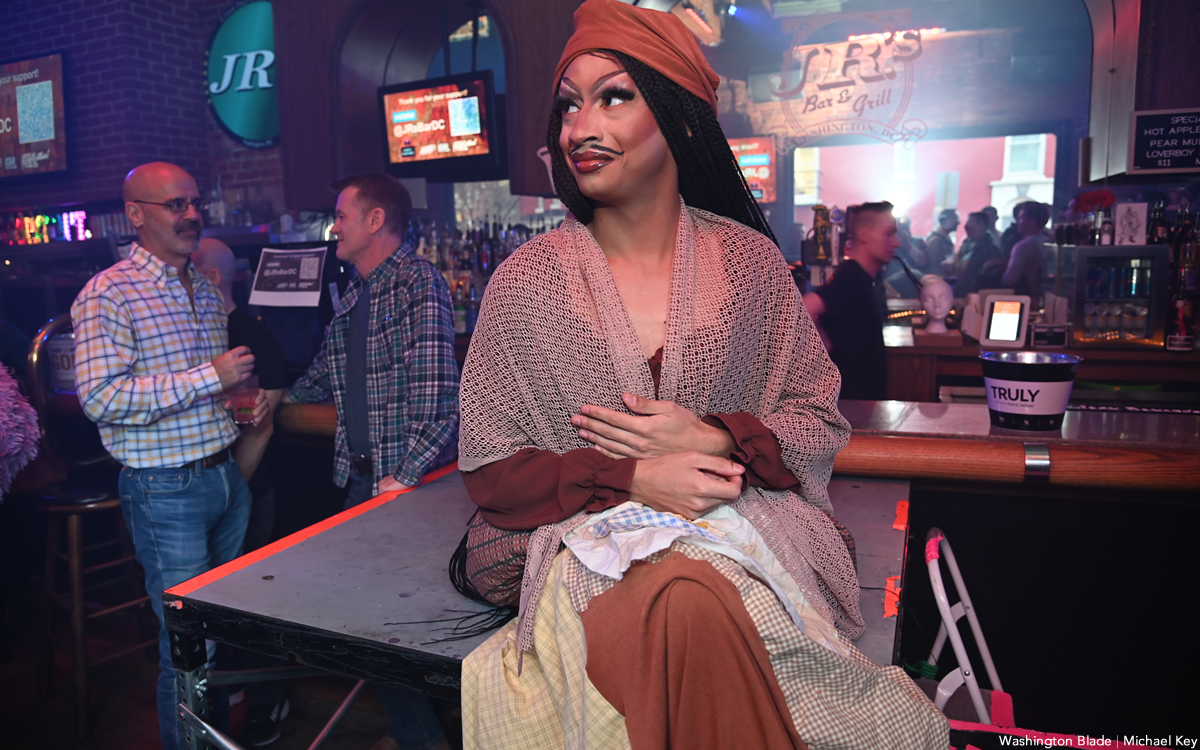
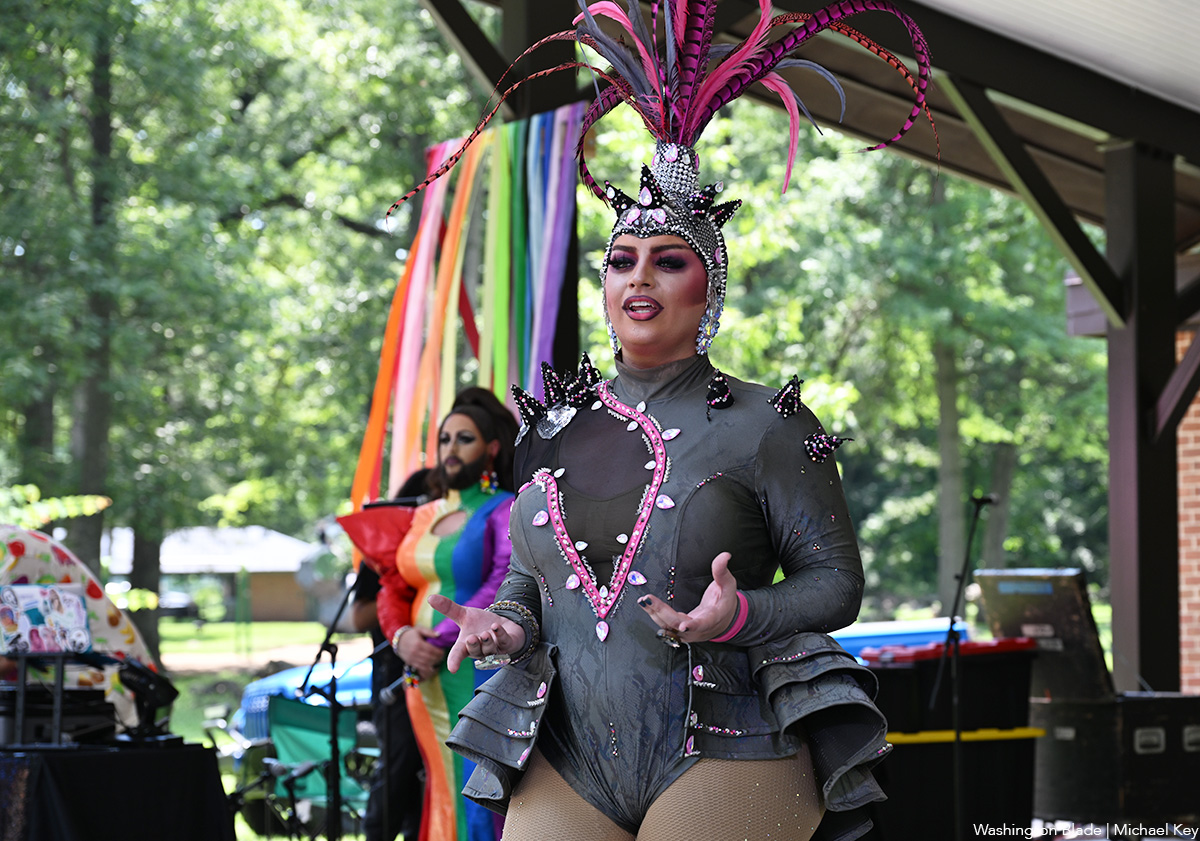
The 13th annual Hagerstown Pride Festival was held at Doubs Woods Park in Hagerstown, Md. on Saturday, June 21.
(Washington Blade photos by Michael Key)
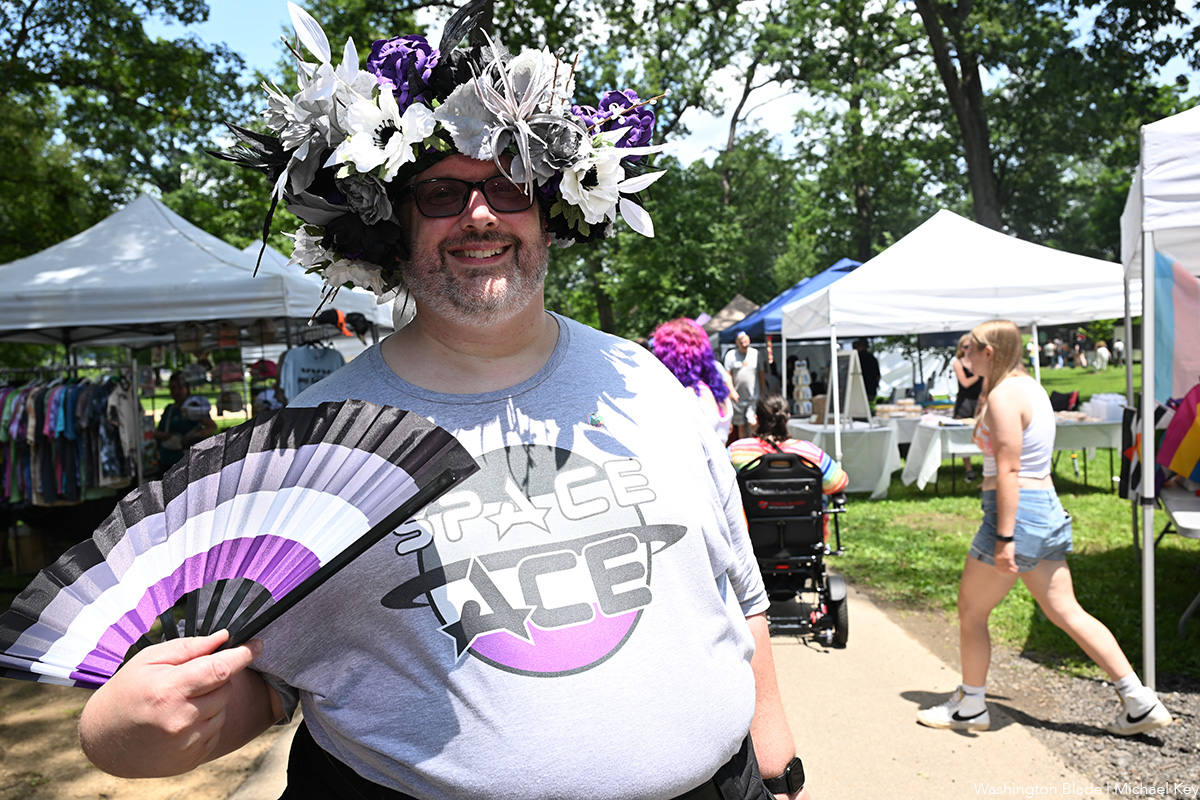
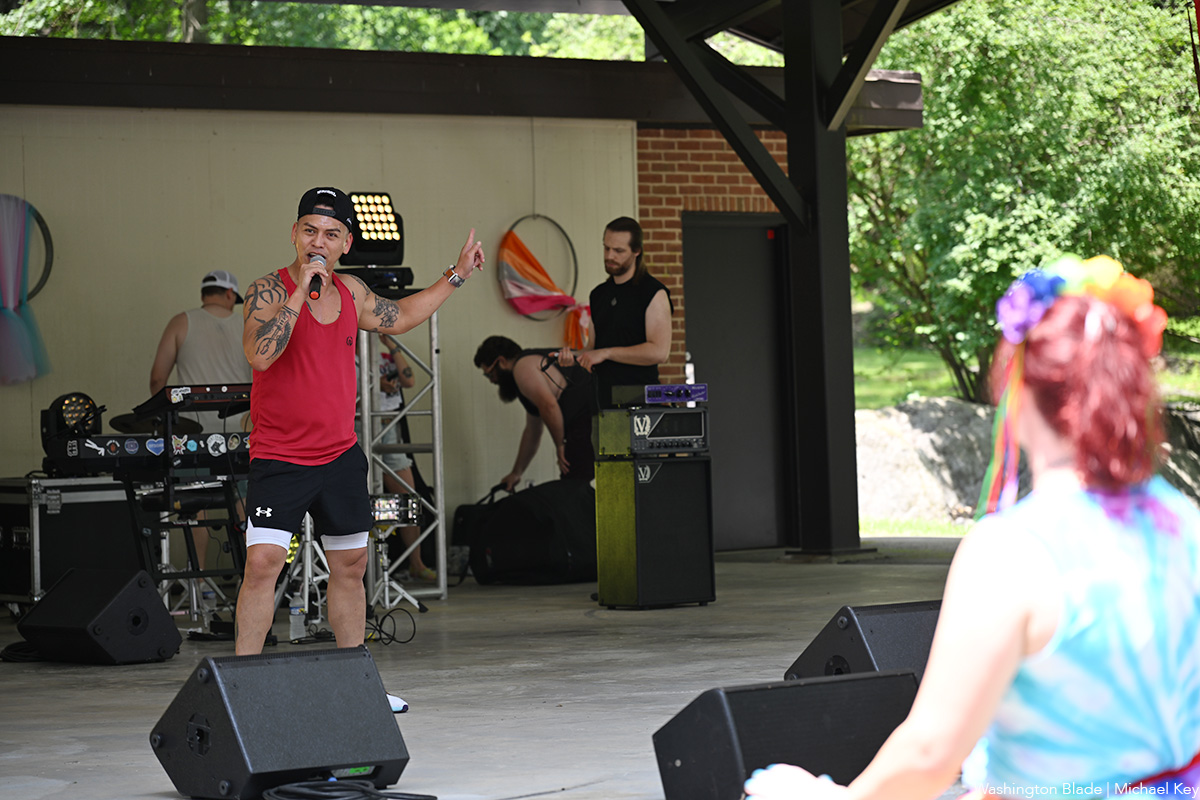
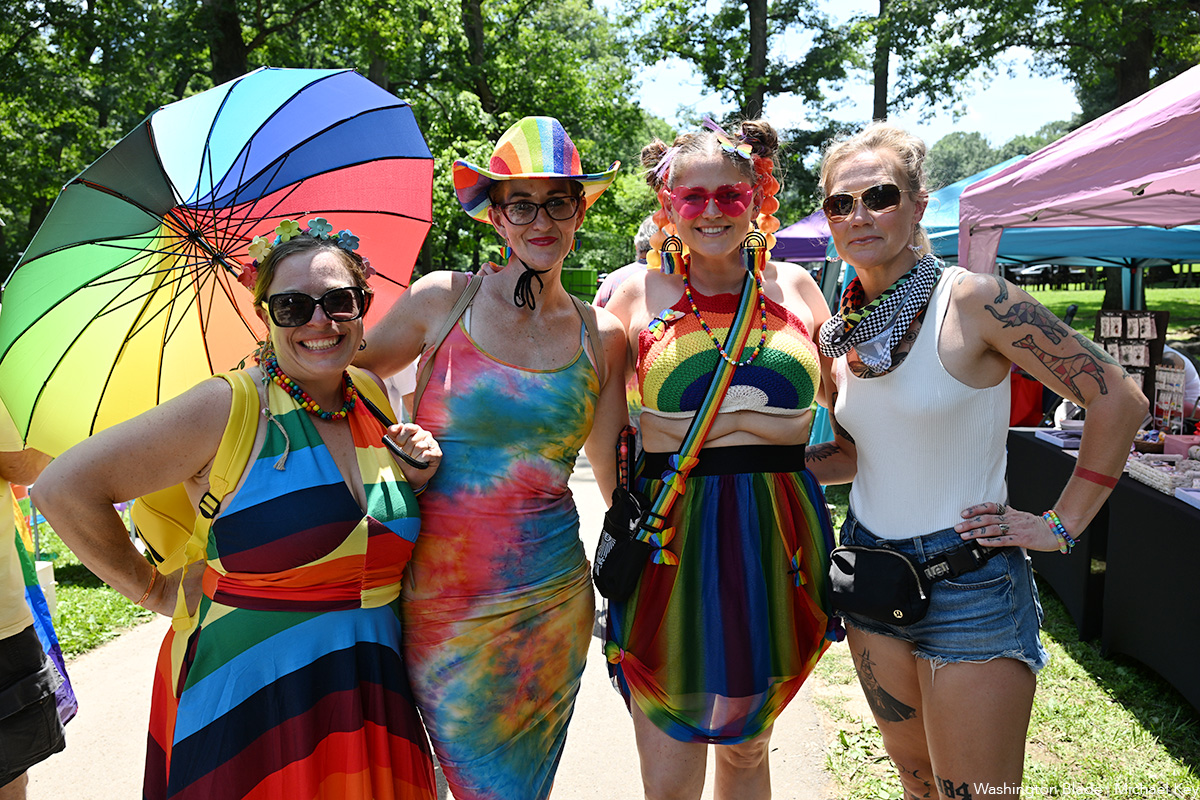
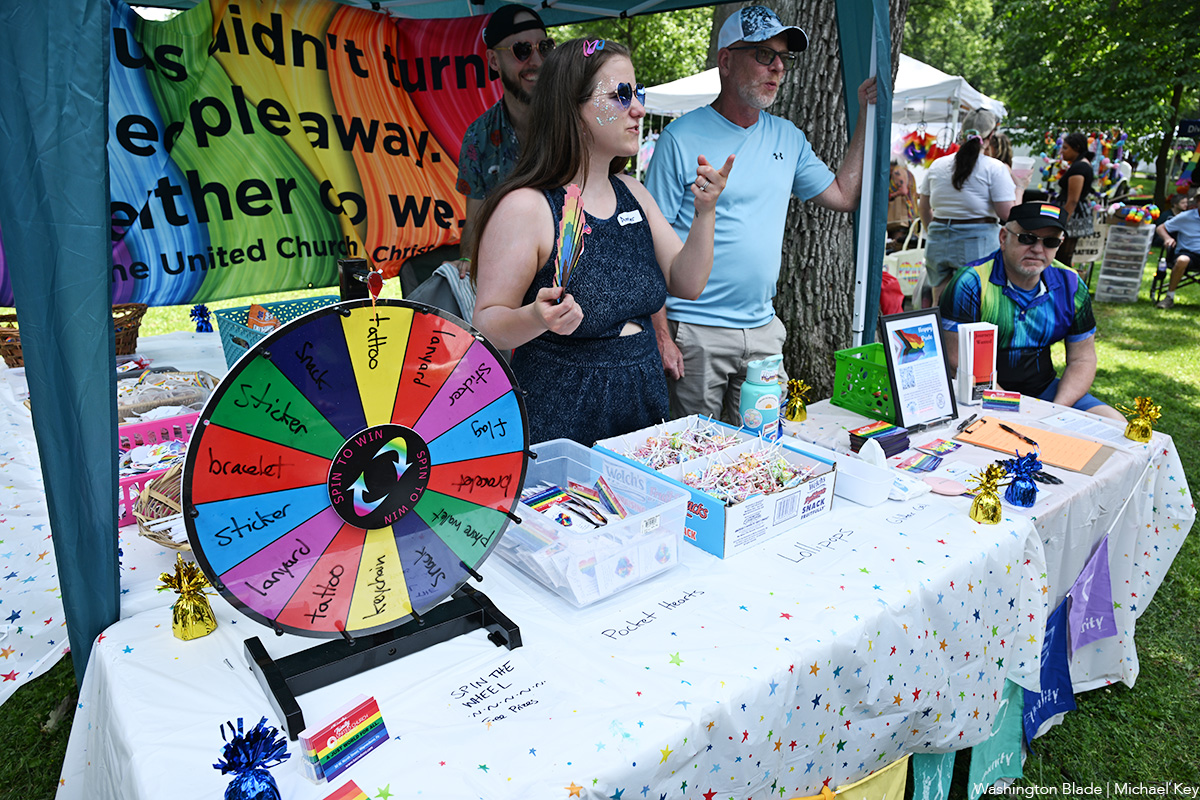
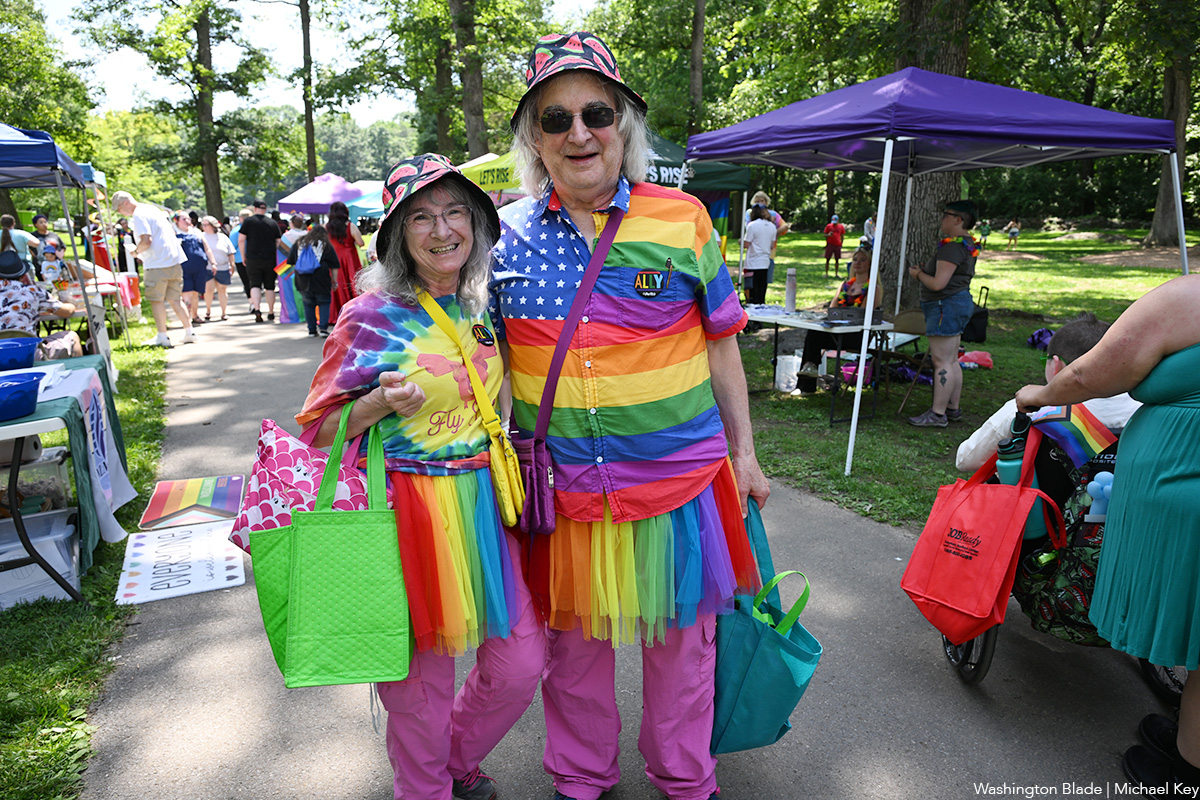
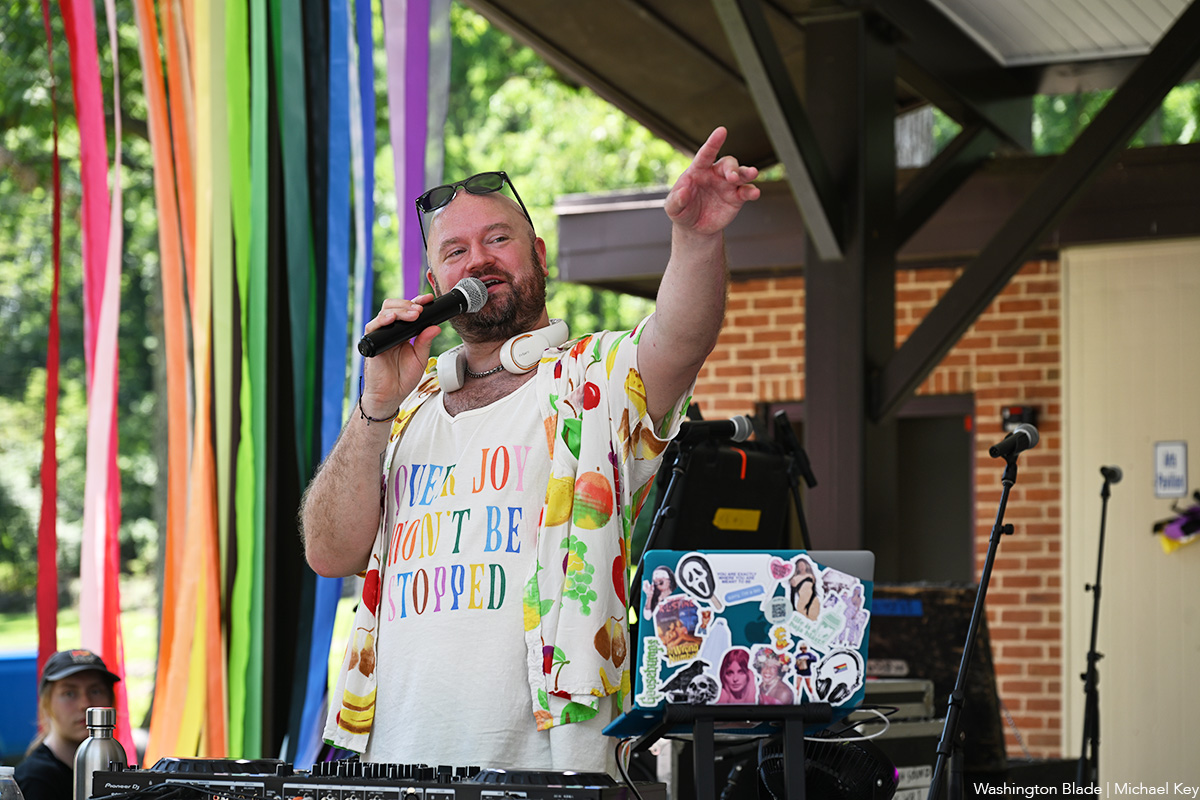
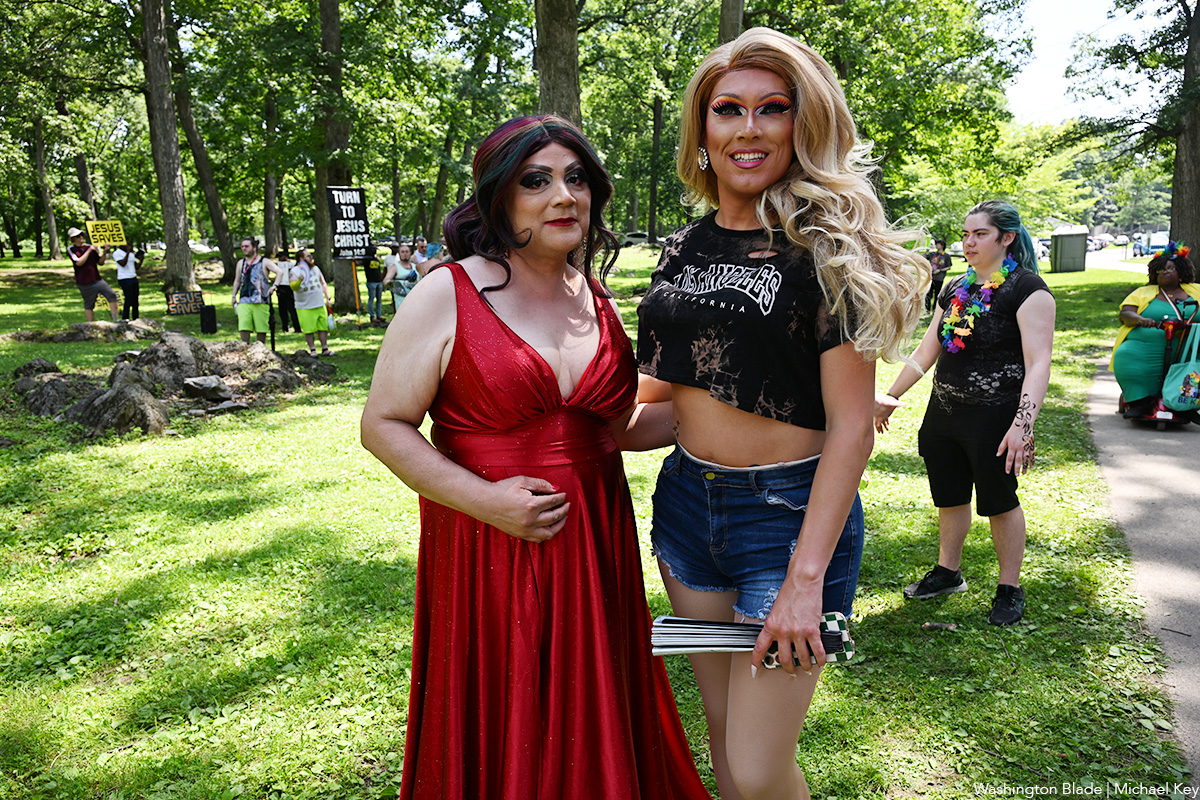
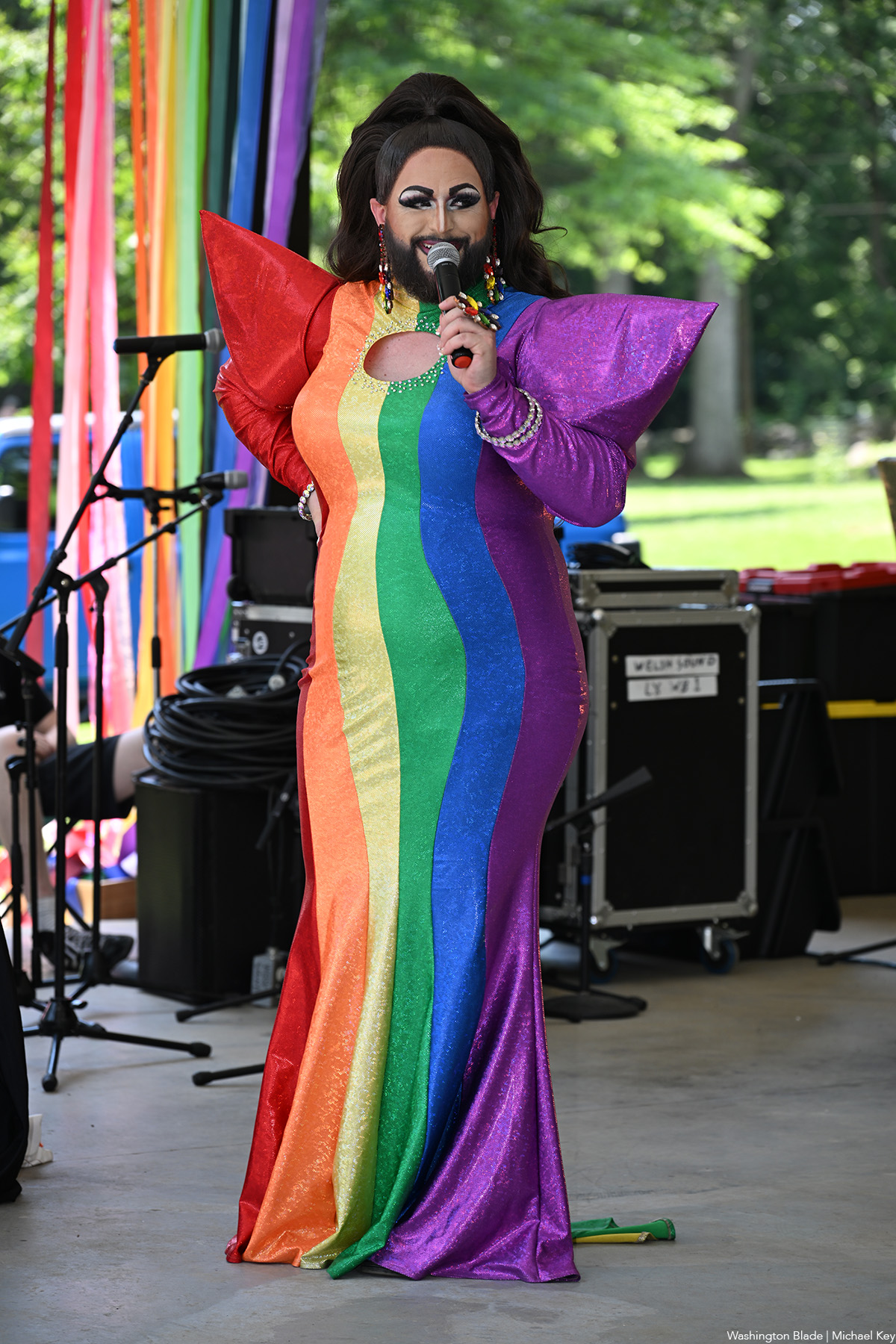
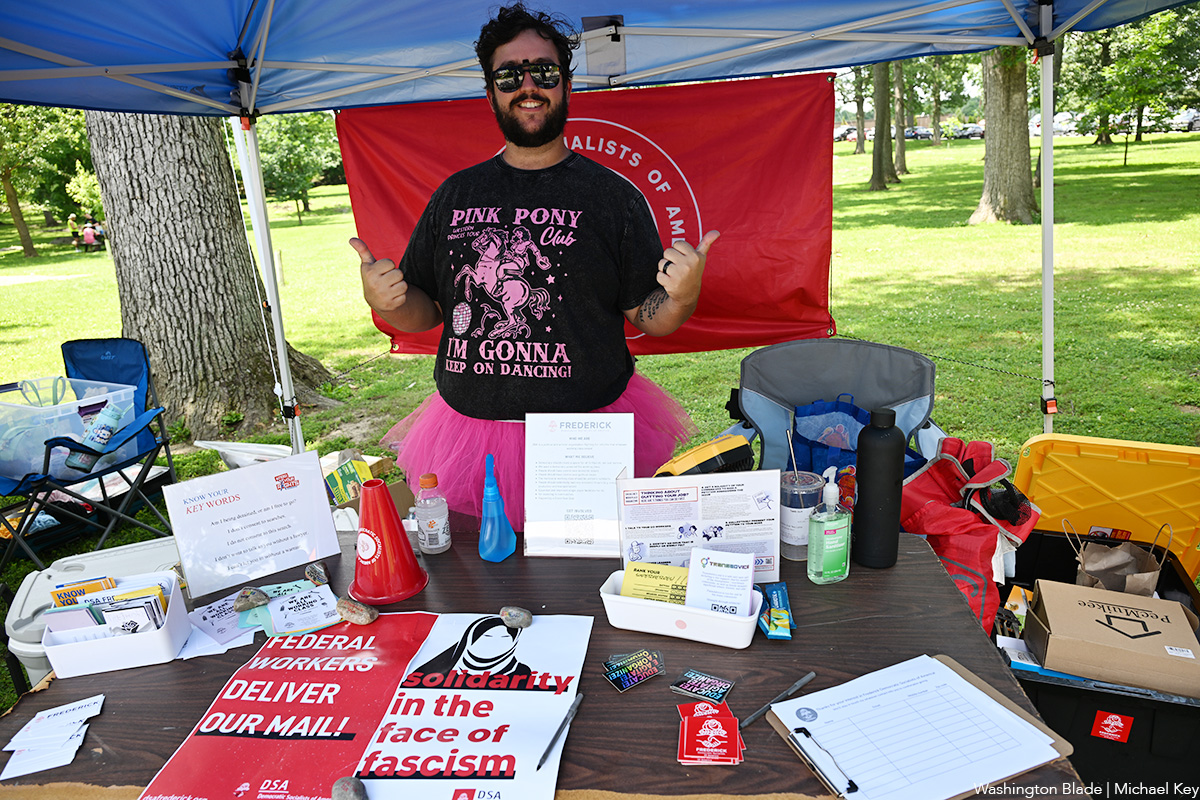
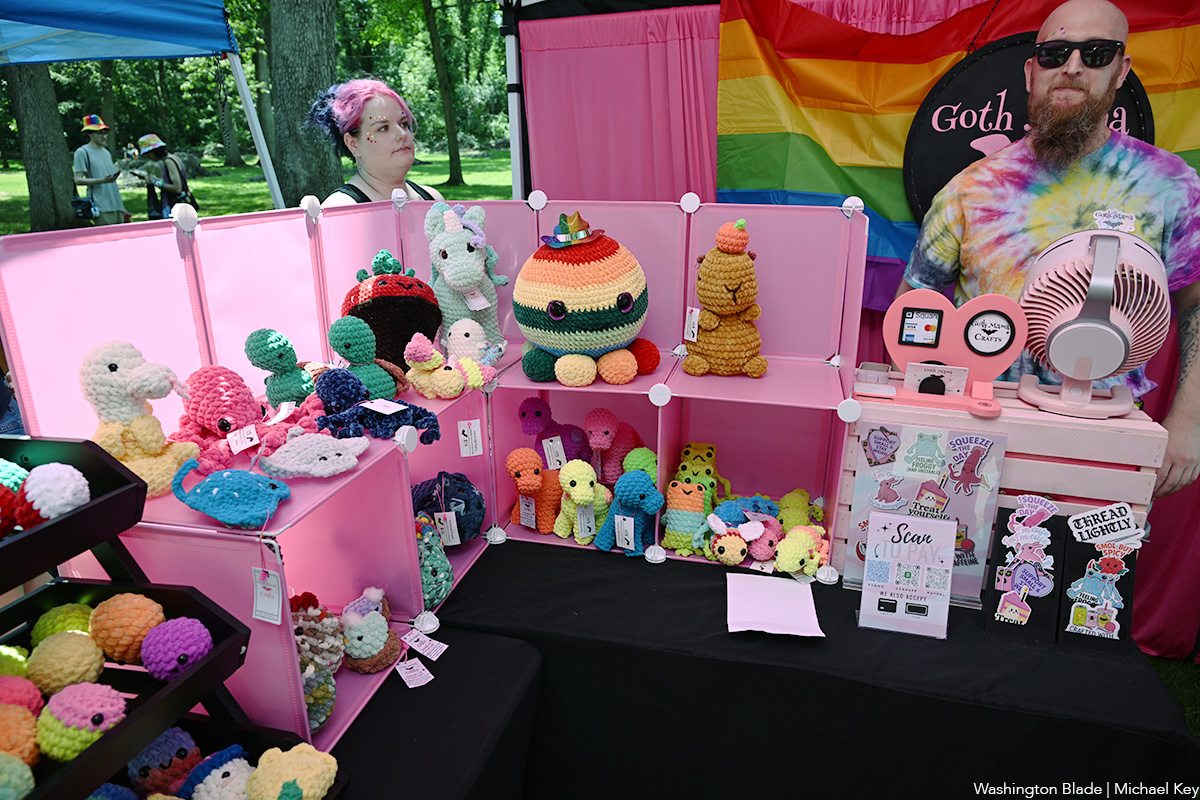
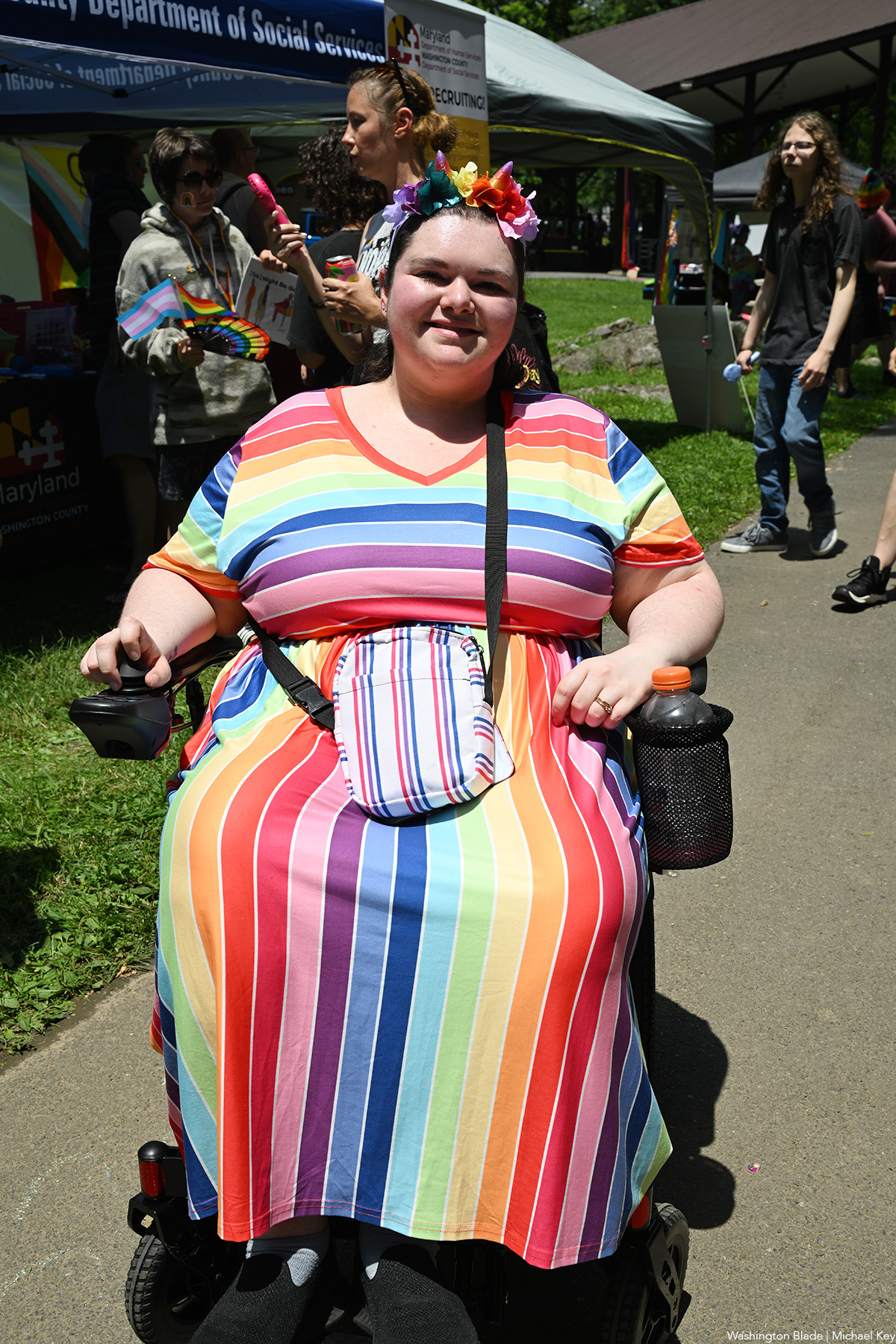
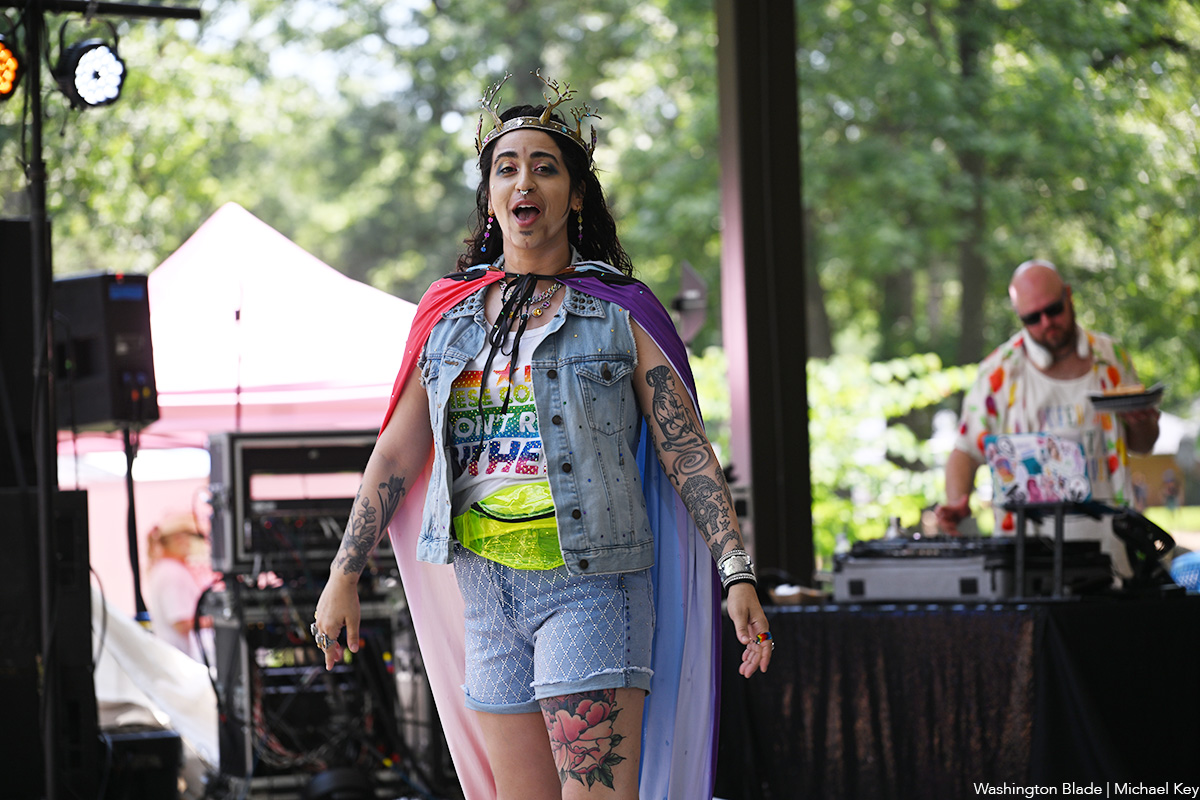
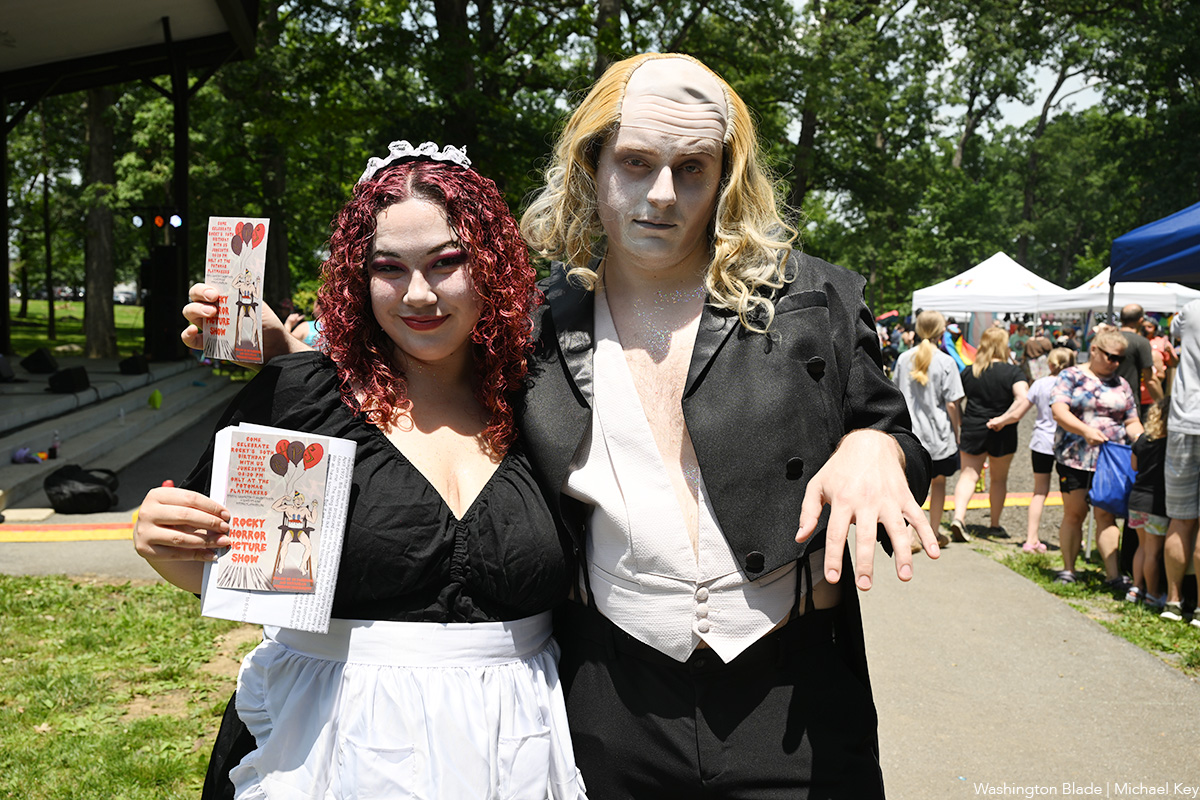
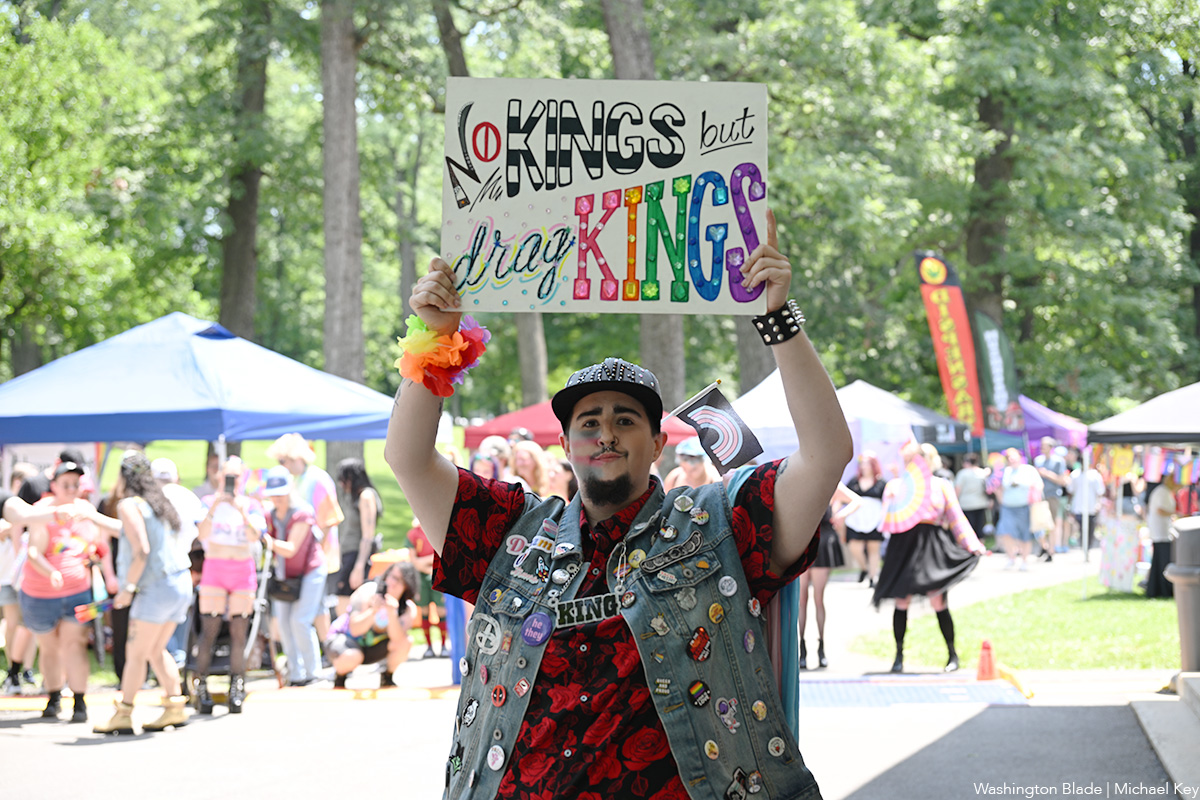
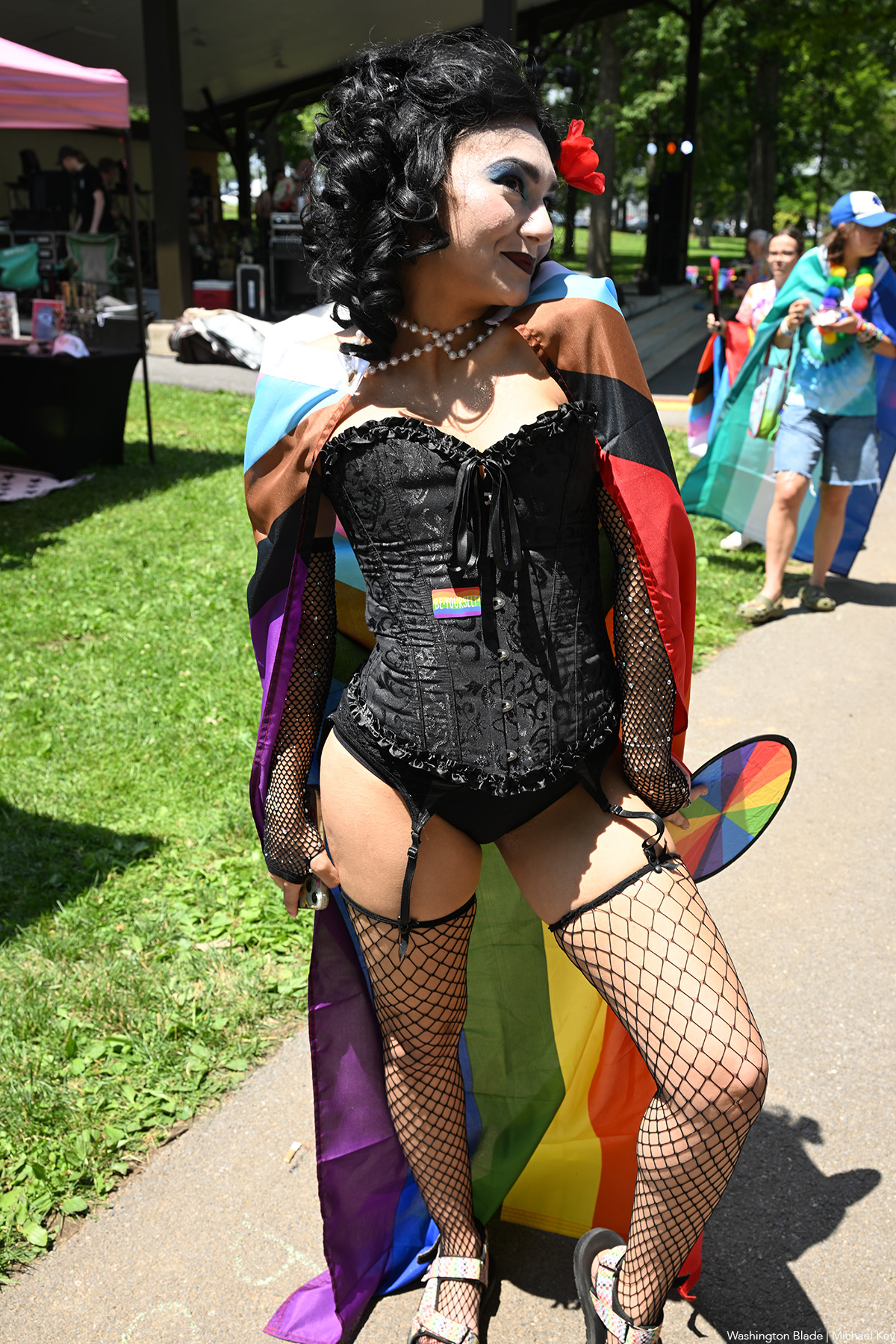
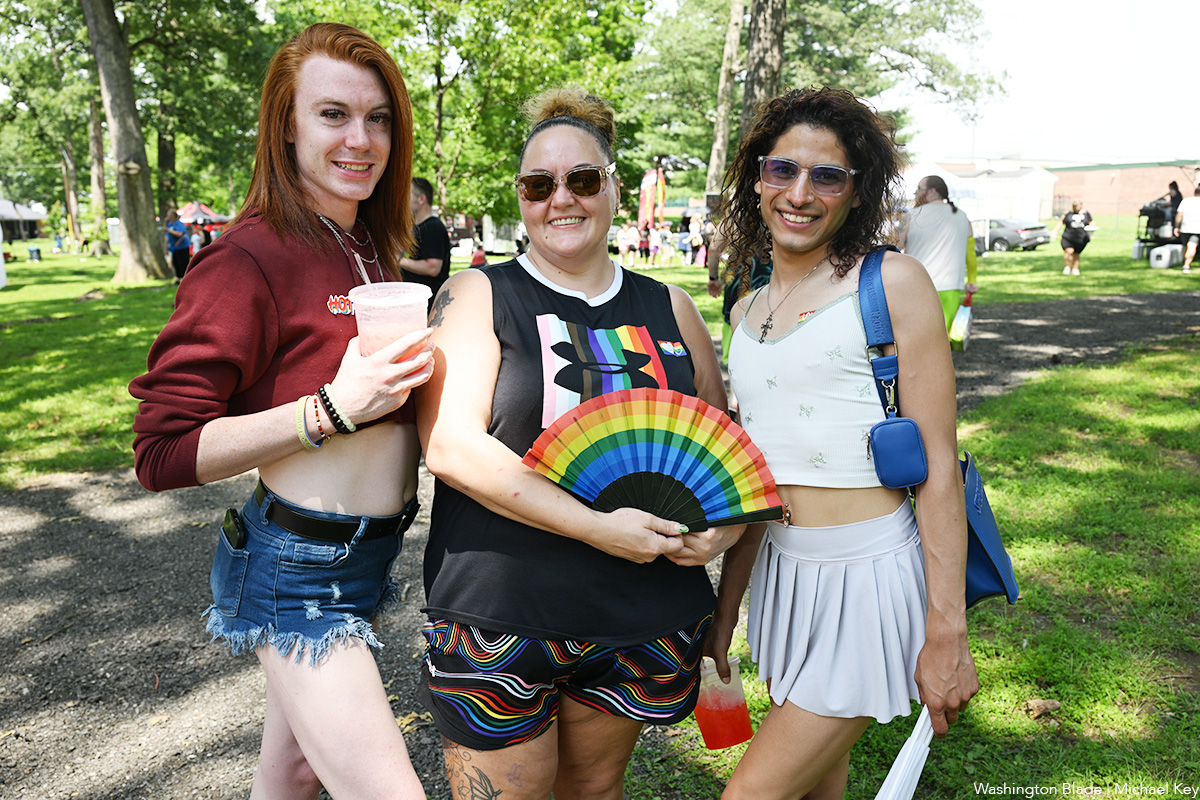
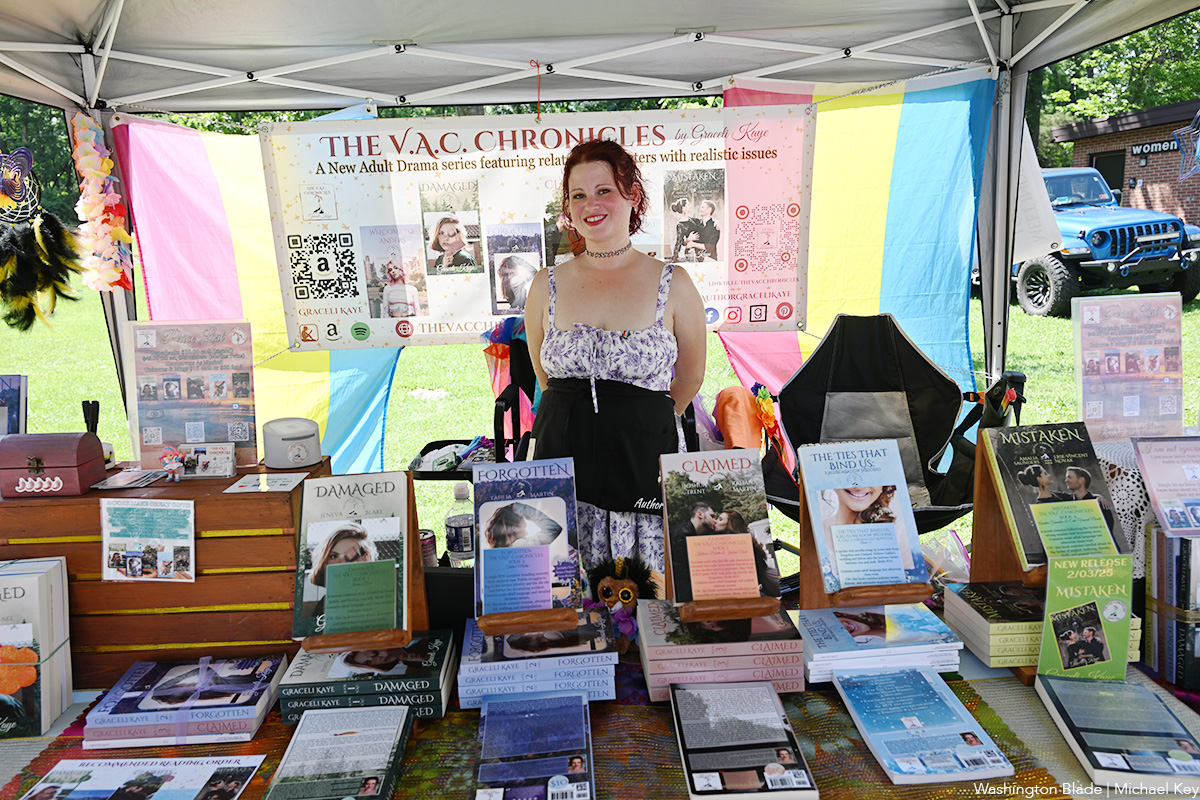
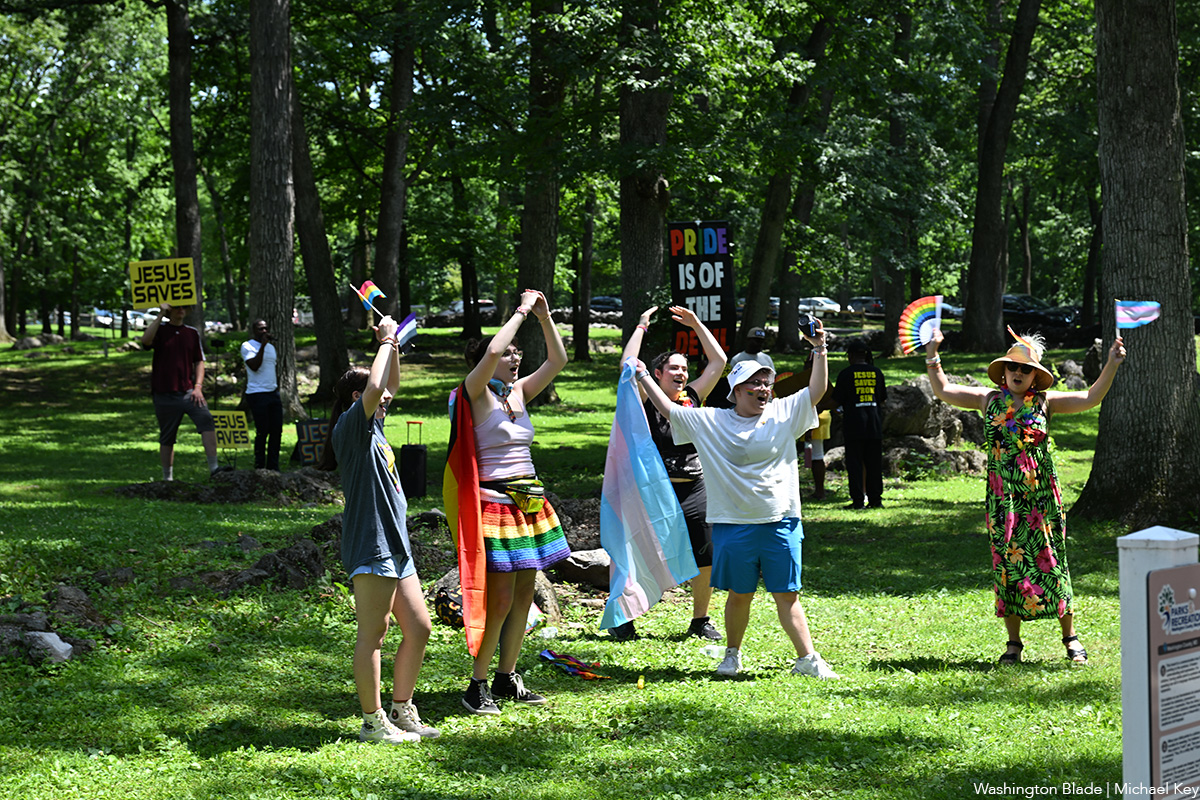
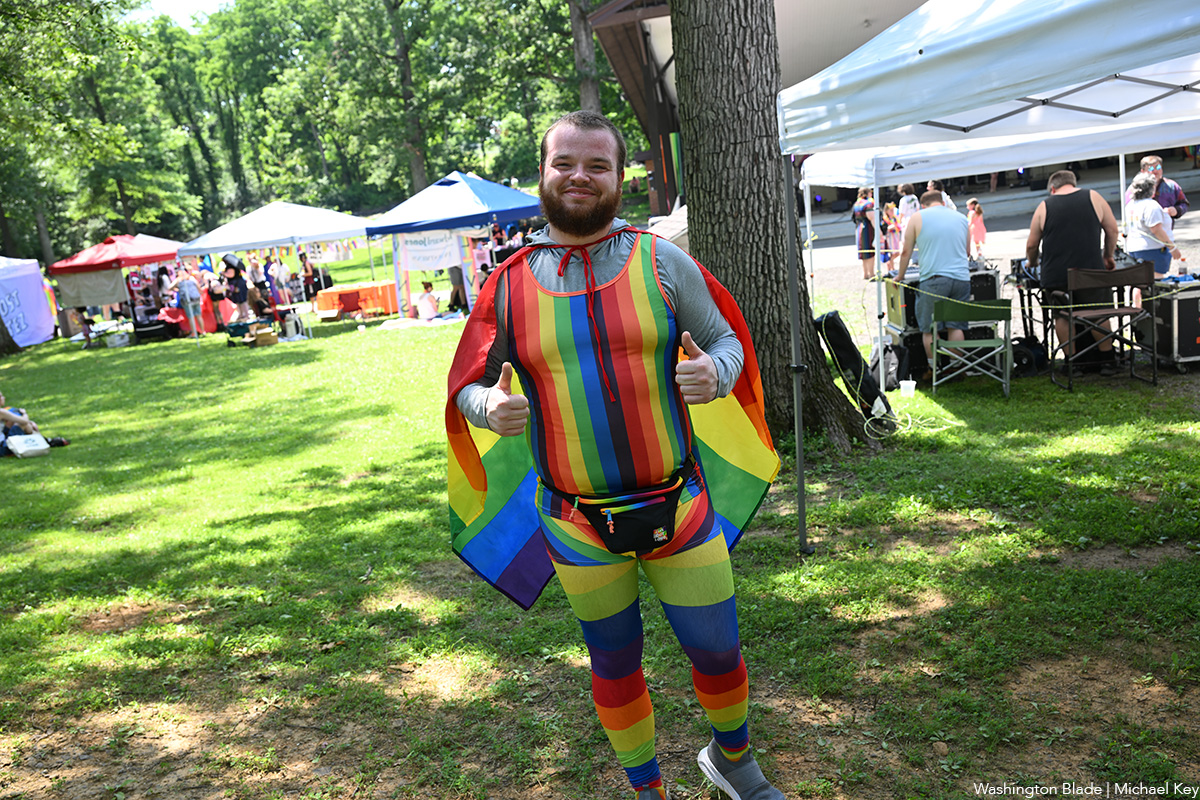
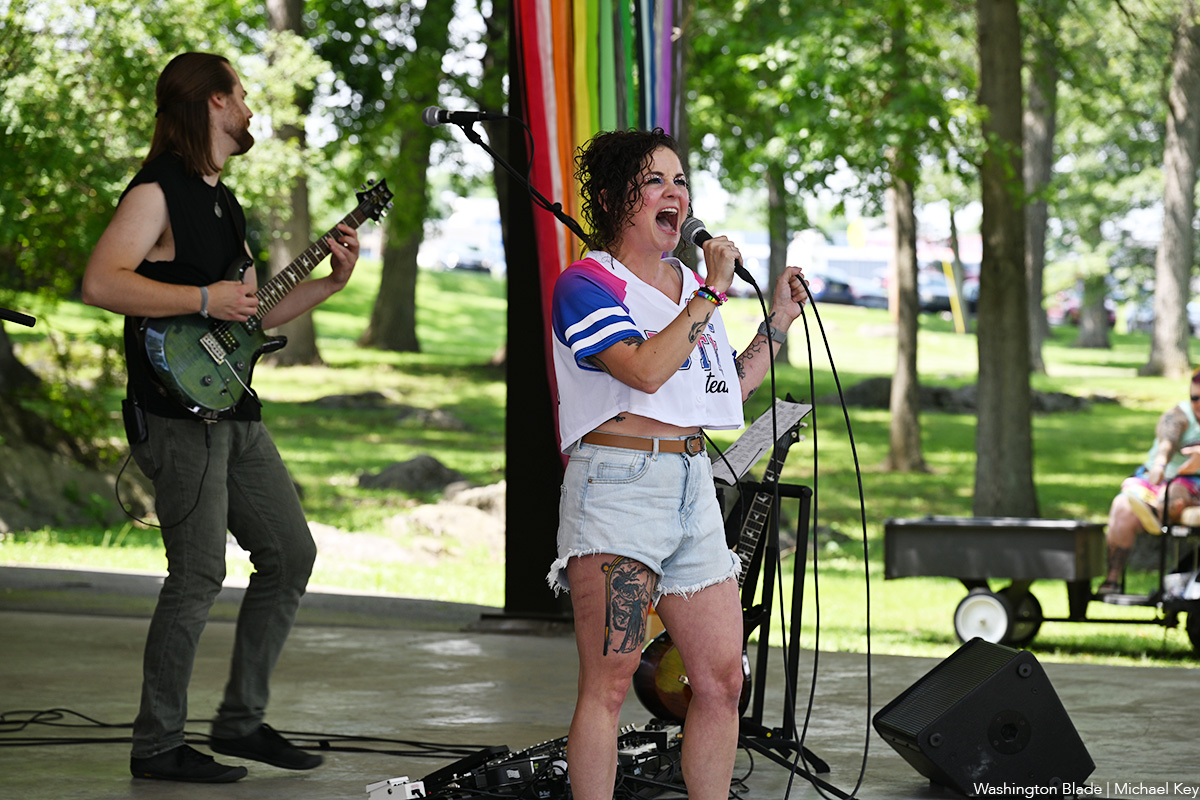
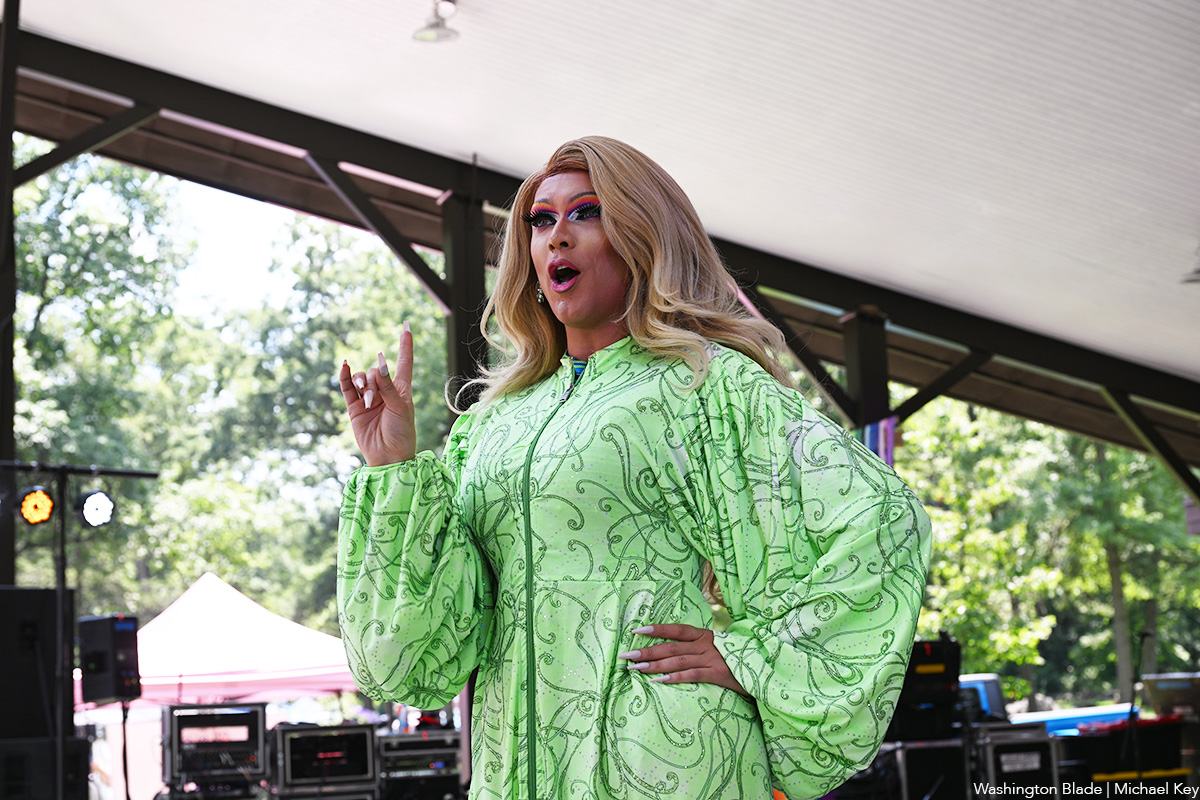
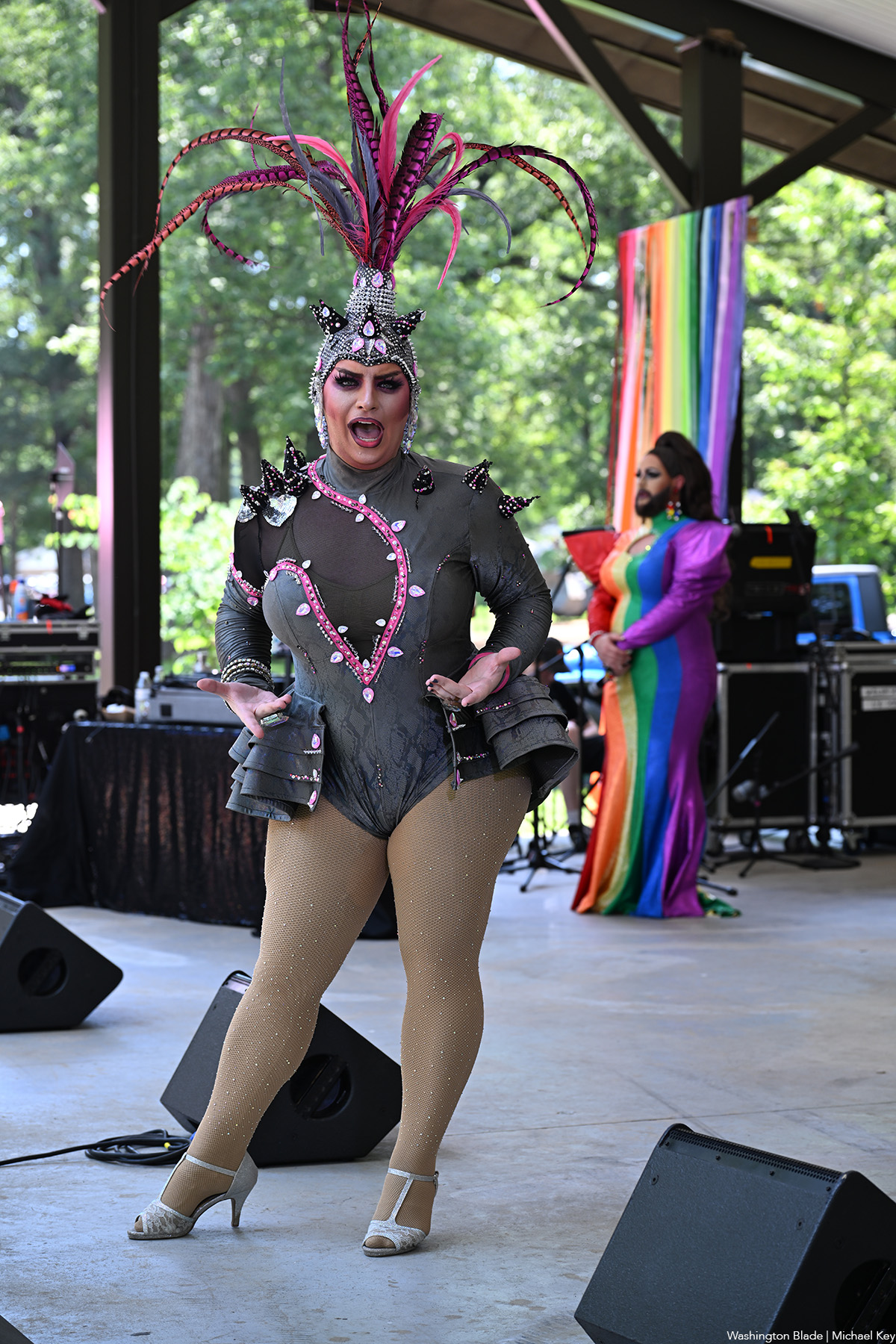
Theater
‘Hunter S. Thompson’ an unlikely but rewarding choice for musical theater
‘Speaks volumes about how sad things land on our country’

‘The Untitled Unauthorized Hunter S. Thompson Musical’
Through July 13
Signature Theatre
4200 Campbell Ave., Arlington, Va.
$47 to $98
Sigtheatre.org
The raucous world of the counterculture journalist may not seem the obvious choice for musical theater, but the positive buzz surrounding Signature Theatre’s production of Joe Iconis’s “The Untitled Unauthorized Hunter S. Thompson Musical” suggests otherwise.
As the titular, drug addled and gun-toting writer, Eric William Morris memorably moves toward his character’s suicide in 2005 at 67. He’s accompanied by an ensemble cast playing multiple roles including out actor George Salazar as Thompson’s sidekick Oscar “Zeta” Acosta, a bigger than life Mexican American attorney, author, and activist in the Chicano Movement who follows closely behind.
Salazar performs a show-stopping number — “The Song of the Brown Buffalo,” a rowdy and unforgettable musical dive into a man’s psyche.
“Playing the part of Oscar, I’m living my Dom daddy activist dreams. For years, I was cast as the best friend with a heart of gold. Quite differently, here, I’m tasked with embodying all the toxic masculinity of the late ‘60s, and a rampant homophobia, almost folded into the culture.”
He continues, “My sexuality aside, I like to think that Oscar would be thrilled by my interpretation of him in that song.
“Our upbringings are similar. I’m mixed race – Filipino and Ecuadorian and we grew up similarly,” says Salazar, 39. “He didn’t fit in as white or Mexican American, and fell somewhere in the middle. Playing Oscar [who also at 39 in 1974 forever disappeared in Mexico], I pulled out a lot of experience about having to code switch before finally finding myself and being confident just doing my own thing.
“As we meet Oscar in the show we find exactly where’s he’s at. Take me or leave me, I couldn’t care less.”
In 2011, just three years after earning his BFA in musical theater from the University of Florida in Gainesville, Salazar fortuitously met Iconis at a bar in New York. The pair became fast friends and collaborators: “This is our third production,” says George. “So, when Joe comes to me with an idea, there hasn’t been a moment that I don’t trust him.”
In “Be More Chill,” one of Iconis’s earlier works, Salazar originated the role of Michael Mell, a part that he counts as one of the greatest joys of artistic life.
With the character, a loyal and caring friend who isn’t explicitly queer but appeals to queer audiences, Salazar developed a fervent following. And for an actor who didn’t come out to his father until he was 30, being in a place to support the community, especially younger queer people, has proved incredibly special.
“When you hear Hunter and Oscar, you might think ‘dude musical,’ but I encourage all people to come see it.” Salazar continues, “Queer audiences should give the show a shot. As a musical, it’s entertaining, funny, serious, affecting, and beautiful. As a gay man stepping into this show, it’s so hetero and I wasn’t sure what to do. So, I took it upon myself that any of the multiple characters I play outside of Oscar, were going to be queer.
Queer friends have seen it and love it, says Salazar. His friend, Tony Award-winning director Sam Pinkleton (“Oh, Mary!”) saw Hunter S. Thompson at the La Jolla Playhouse during its run in California, and said it was the best musical he’d seen in a very long time.
“Since the work’s inception almost 10 years ago, I was the first Oscar to read the script. In the interim, the characters’ relationships have grown but otherwise there have been no major changes. Still, it feels more impactful in different ways: It’s exciting to come here to do the show especially since Hunter S. Thompson was very political.”
Salazar, who lives in Los Angeles with his partner, a criminal justice reporter for The Guardian, is enjoying his time here in D.C. “In a time when there are so many bans – books, drag queens, and travel — all I see is division. This is an escape from that.”
He describes the Hunter Thompson musical as Iconis’s masterpiece, adding that it’s the performance that he’s most proud of to date and that feels there a lot of maturity in the work.
“In the play, Thompson talks to Nixon about being a crook and a liar,” says Salazar. “The work speaks volumes about how sad things land on our country: We seem to take them one step forward and two steps back; the performance is almost art as protest.”
Photos
PHOTOS: Goodwin Living Pride Parade
Senior living and healthcare organization holds fifth annual march at Falls Church campus
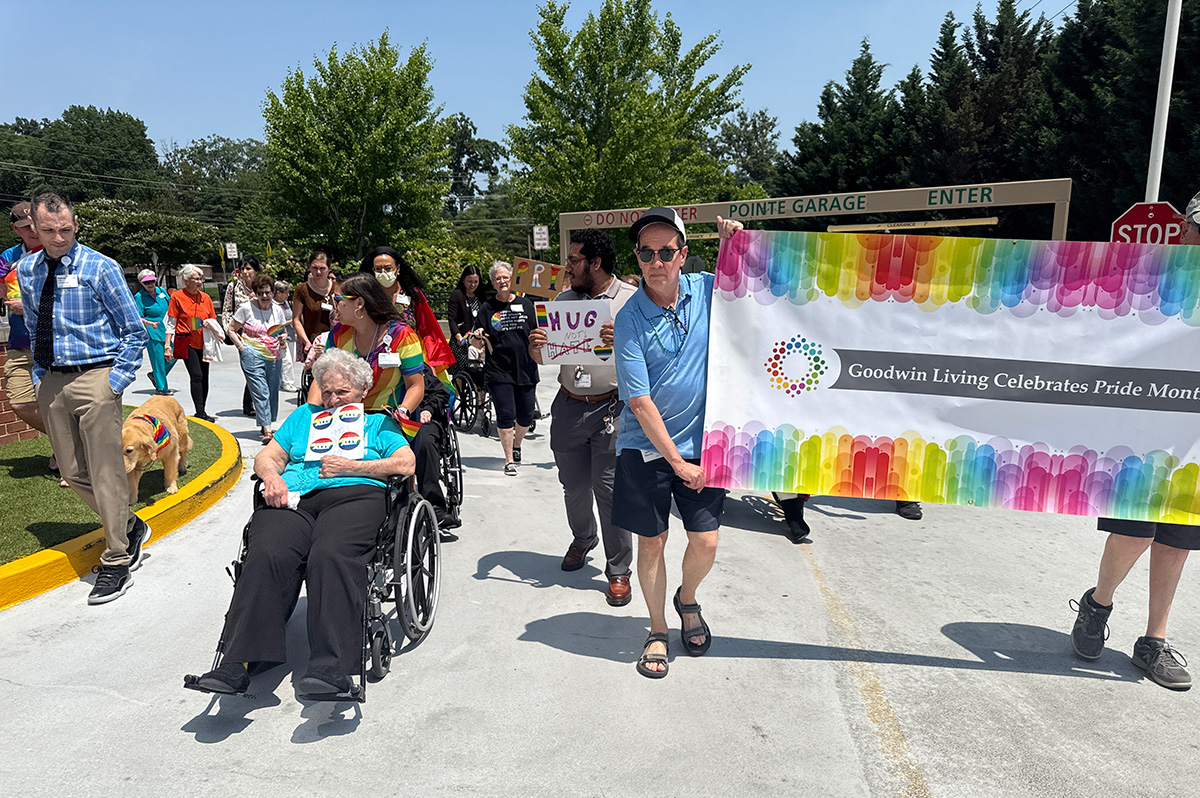
The senior living and healthcare organization Goodwin Living held its fifth annual Pride Parade around its Bailey’s Crossroads campus in Falls Church, Va. with residents, friends and supporters on Thursday, June 12.
(Photos courtesy of Goodwin Living)
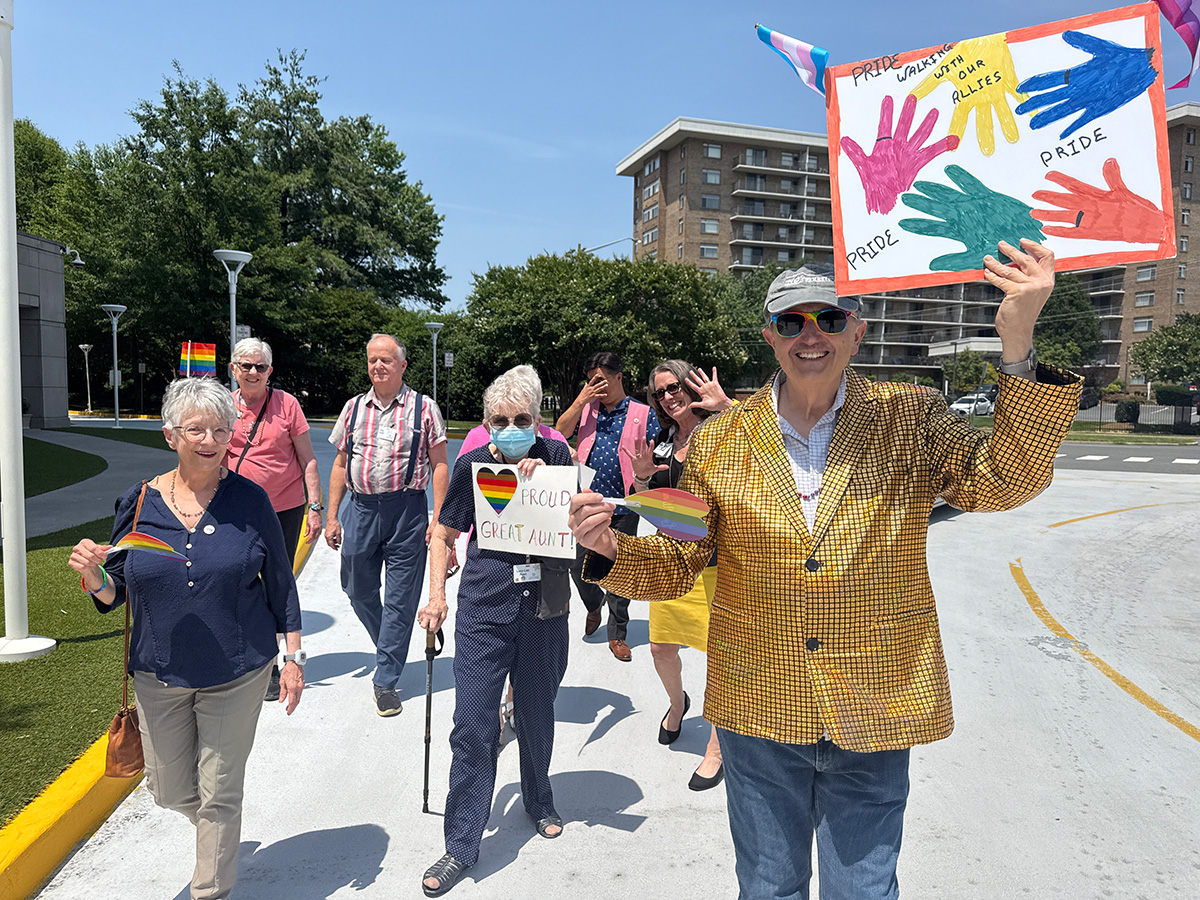
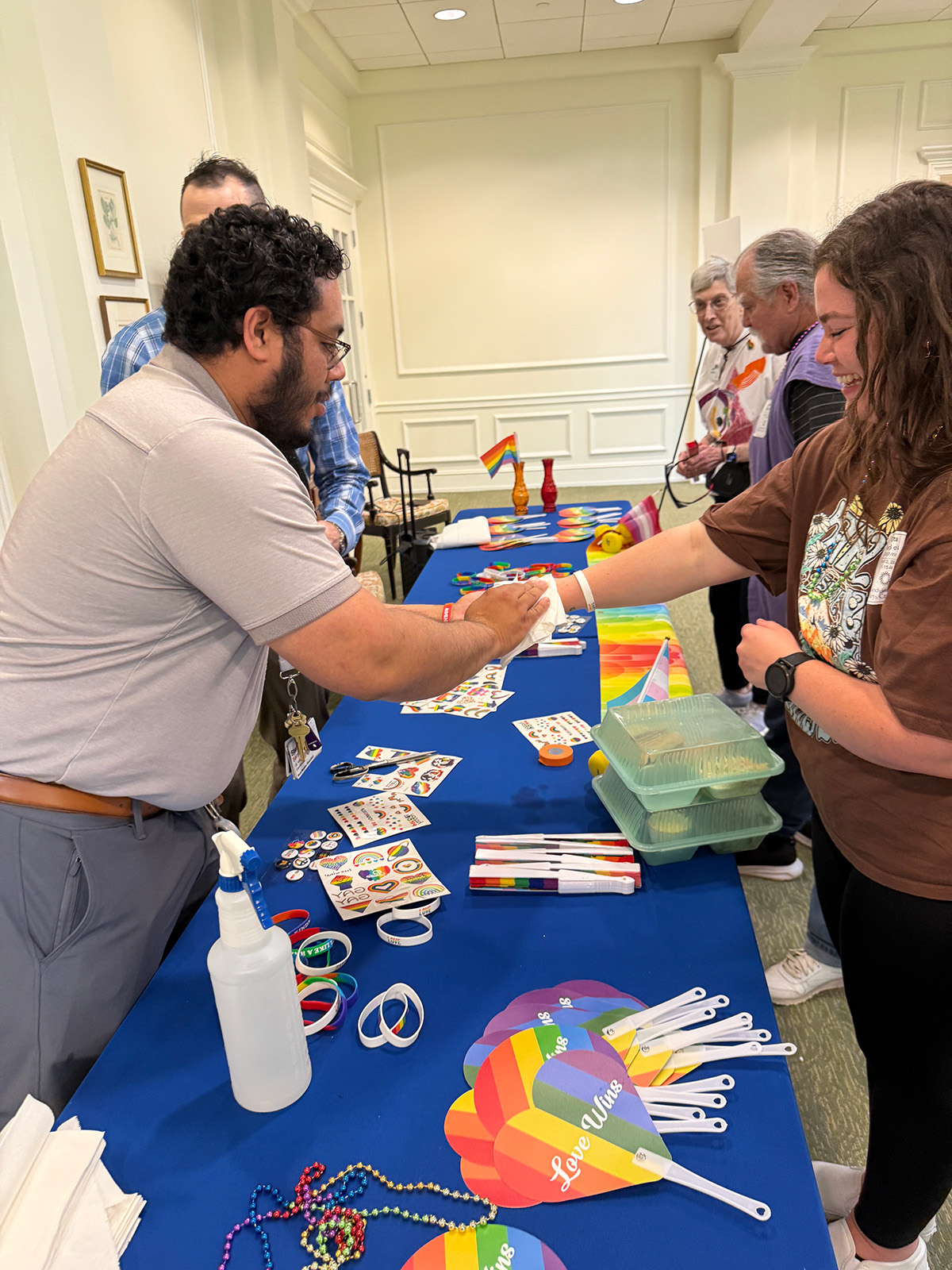
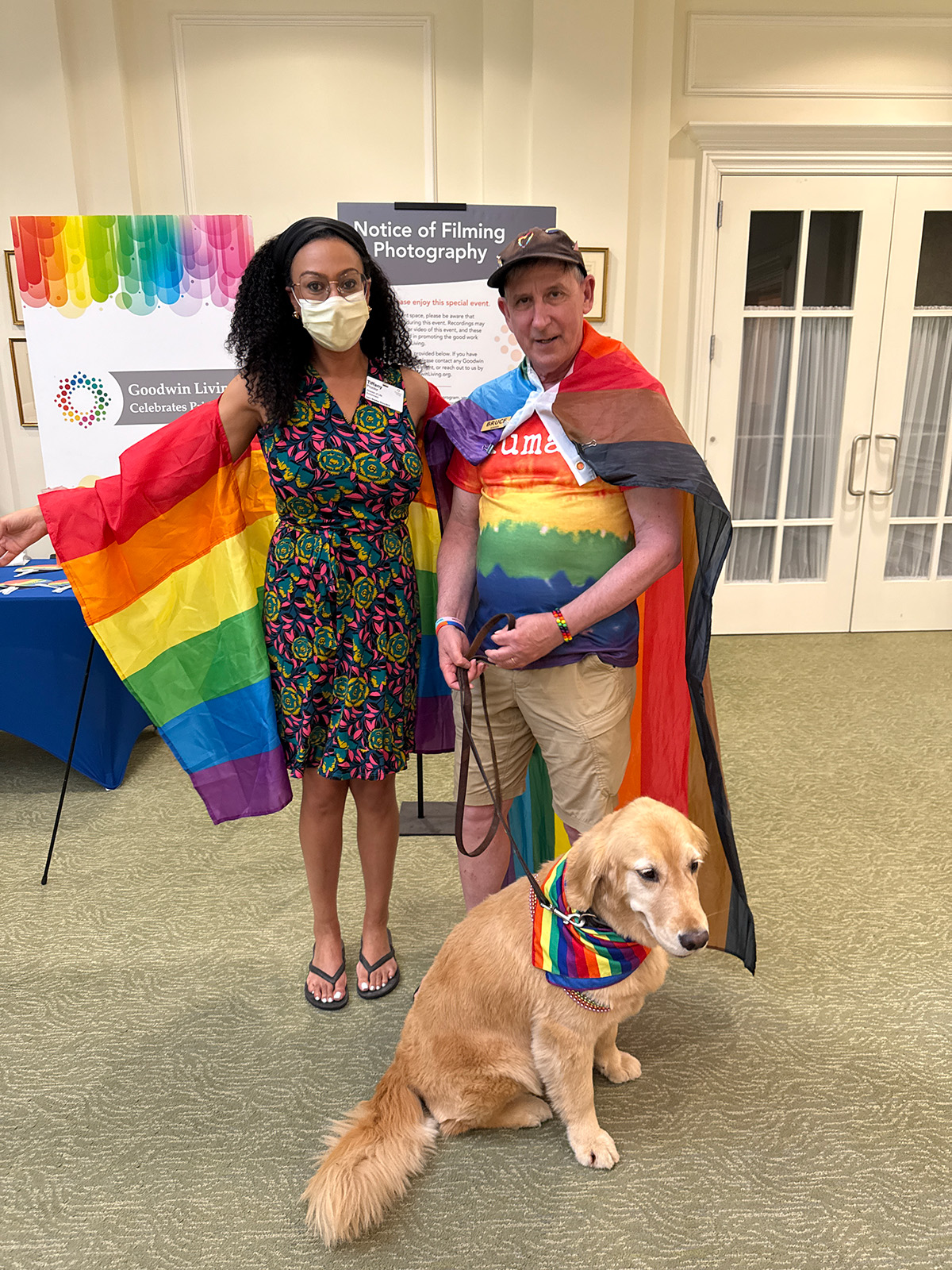
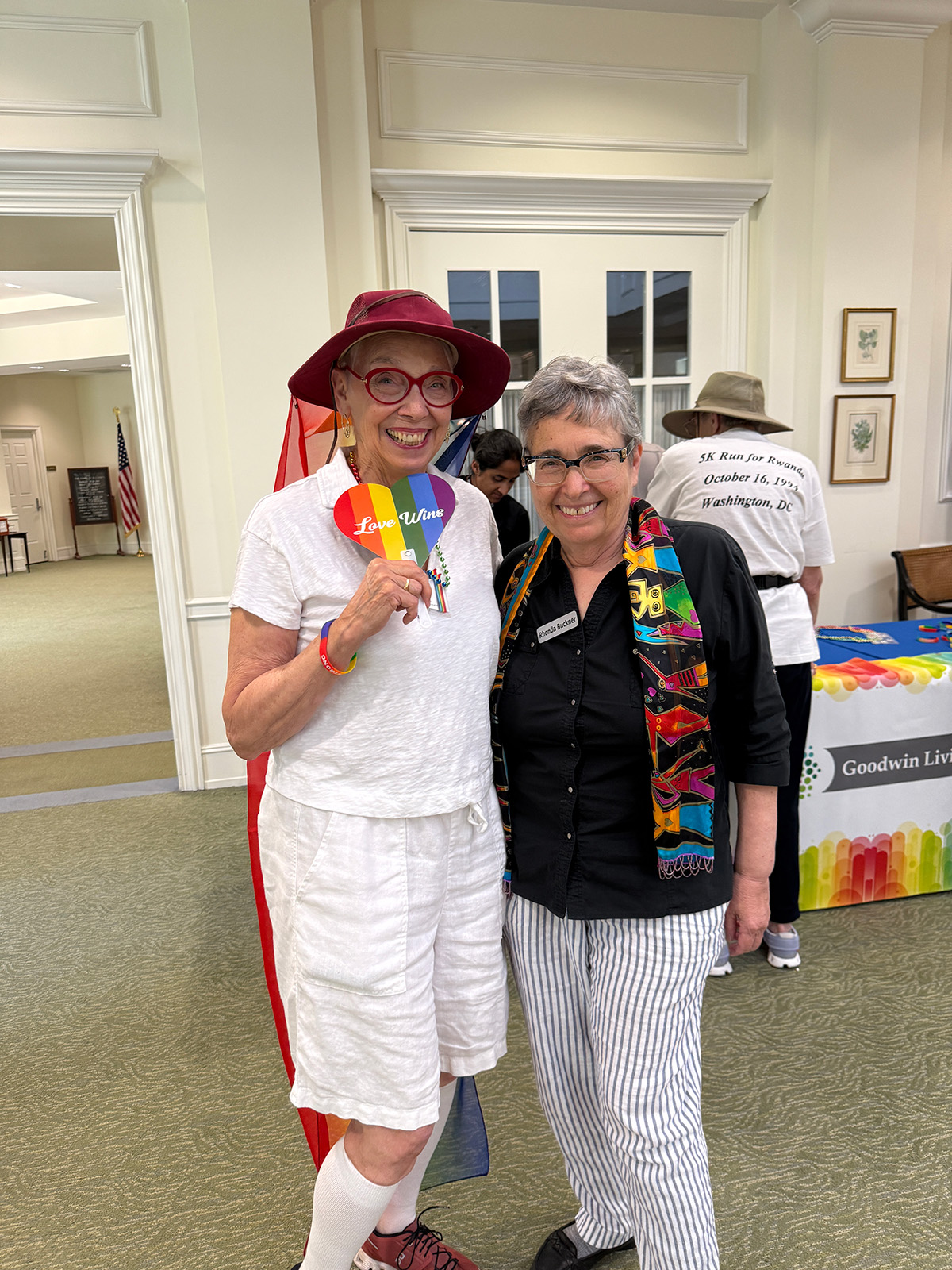
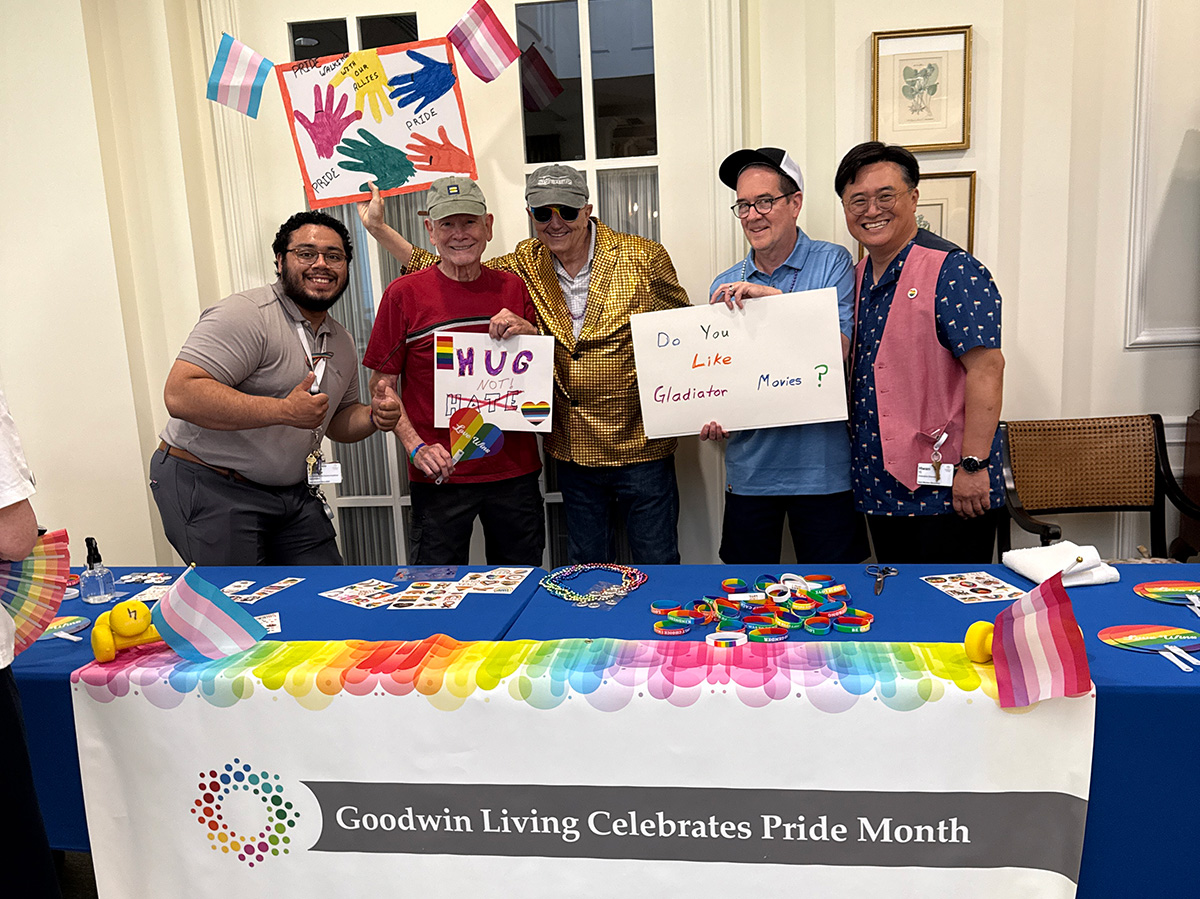
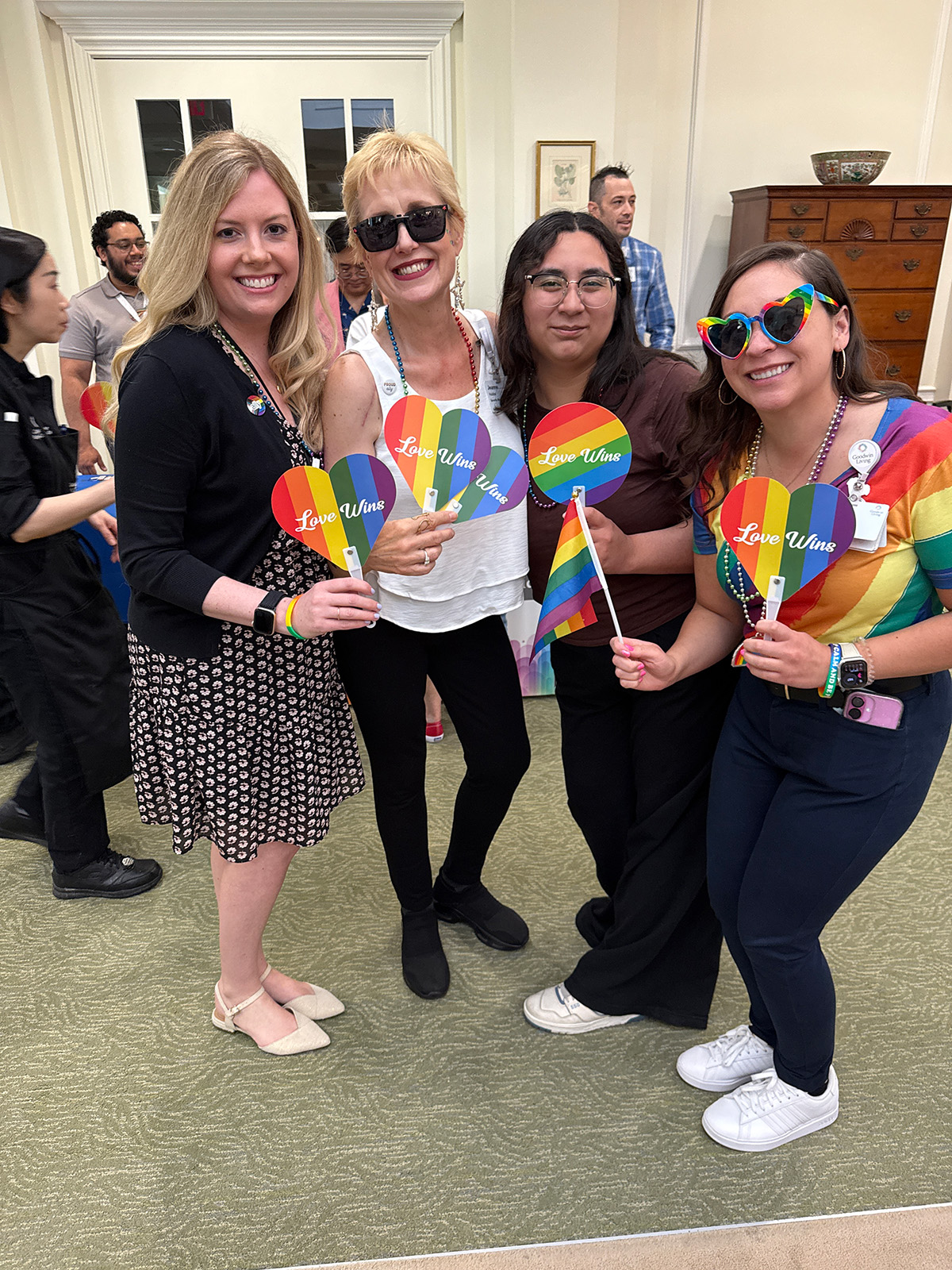
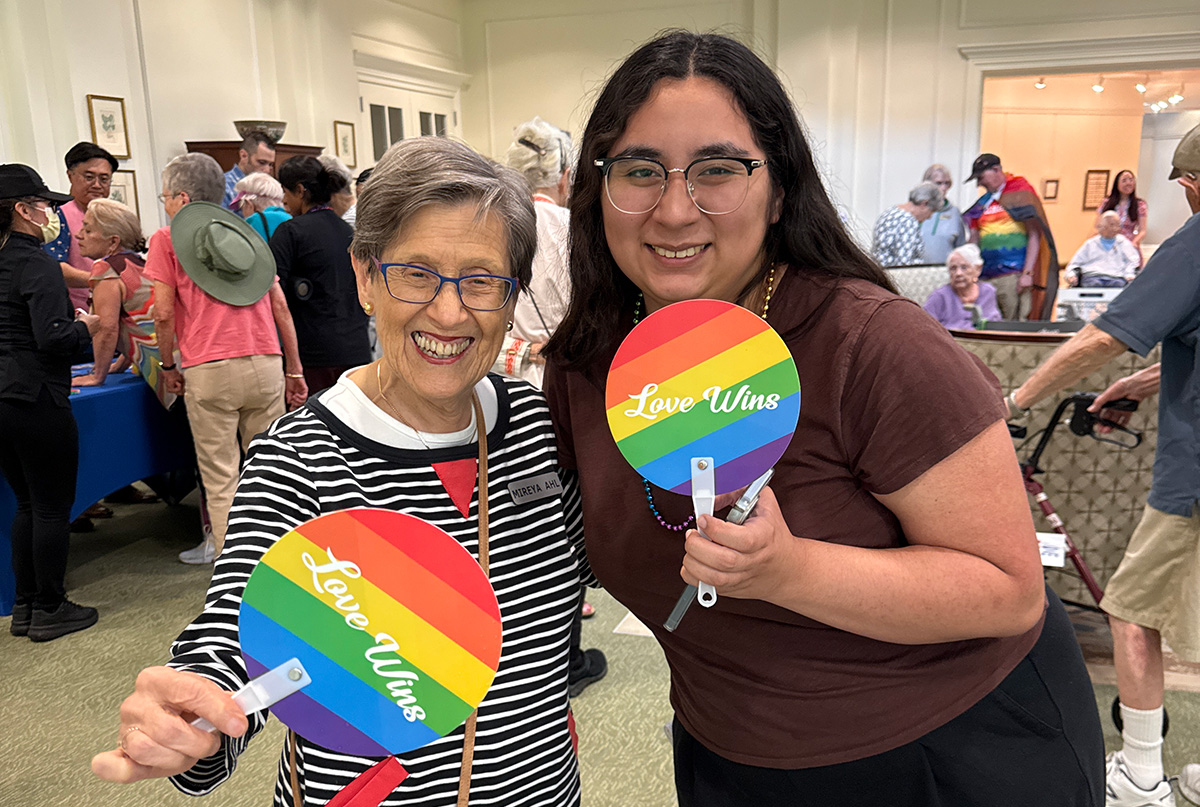
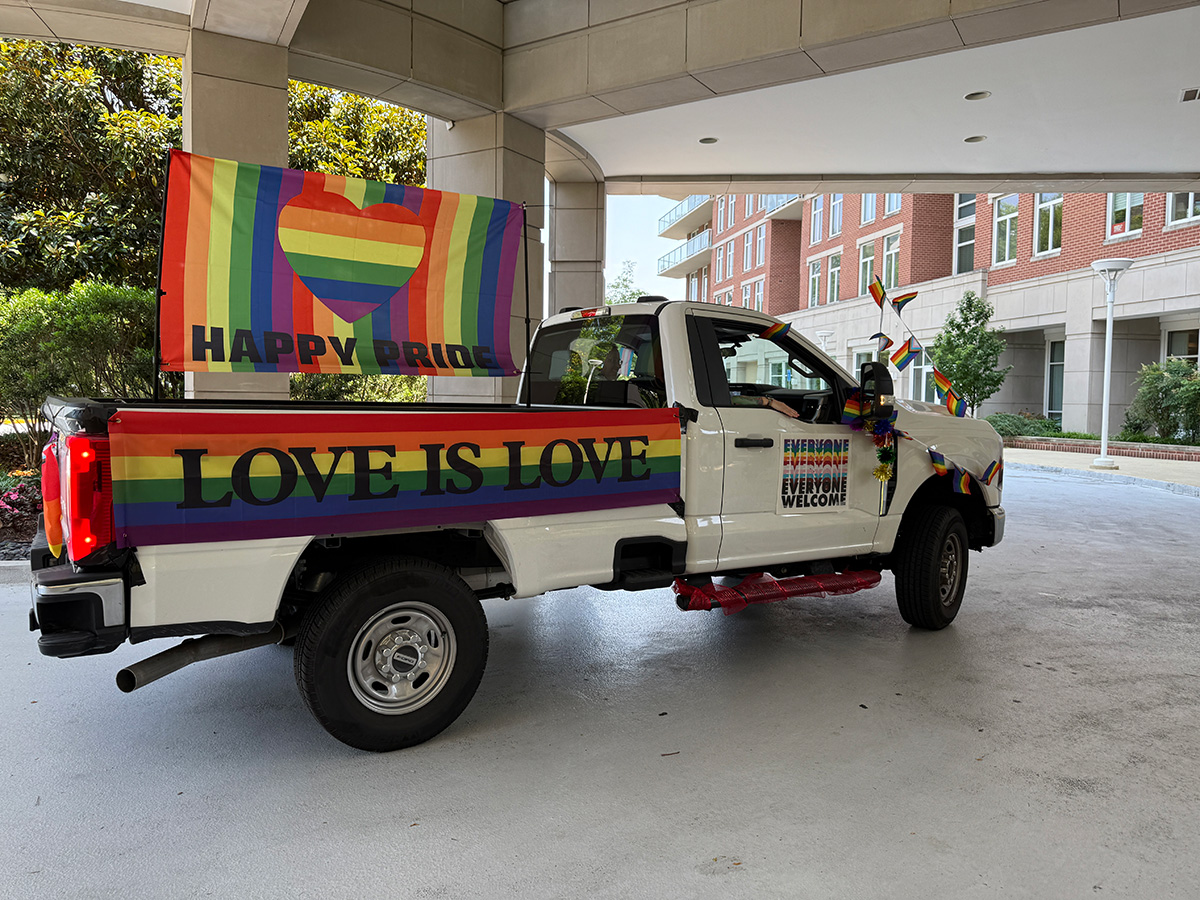
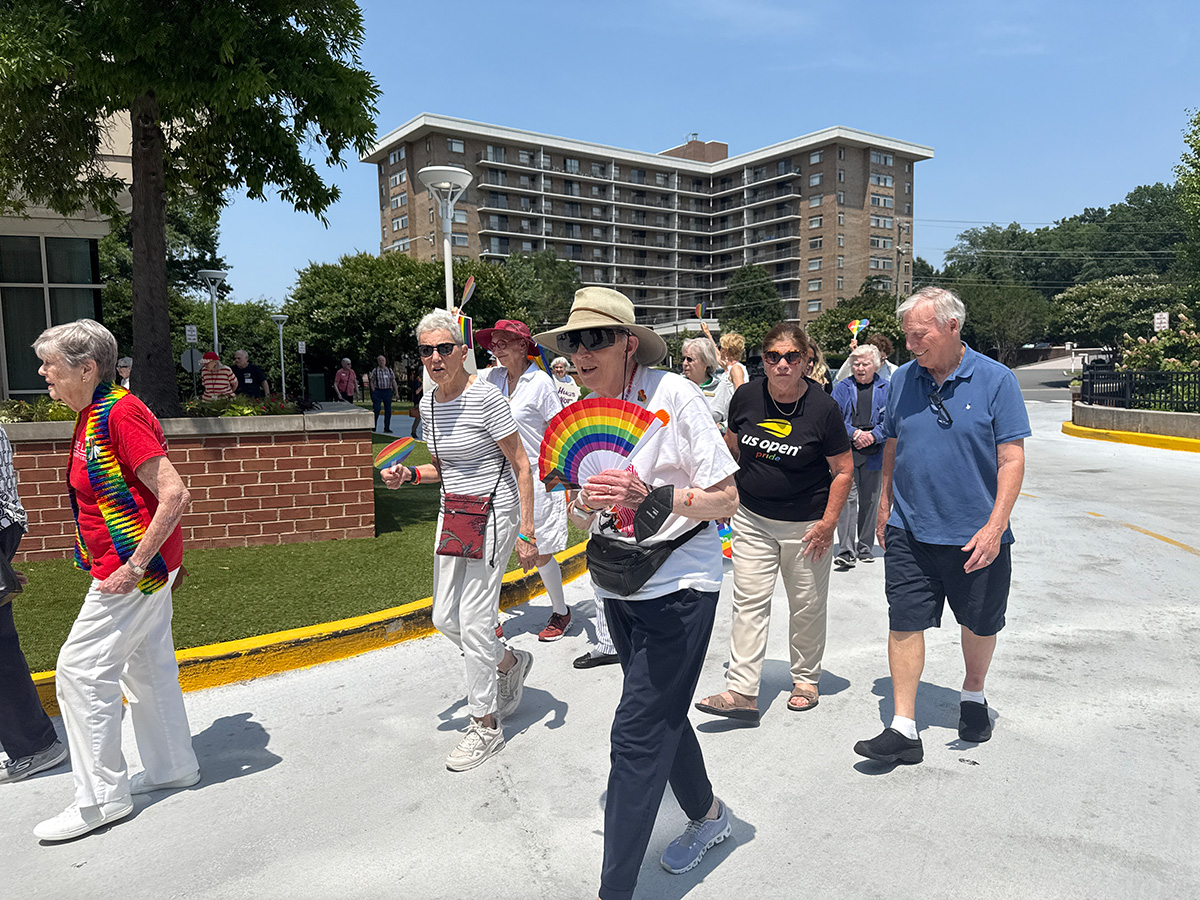
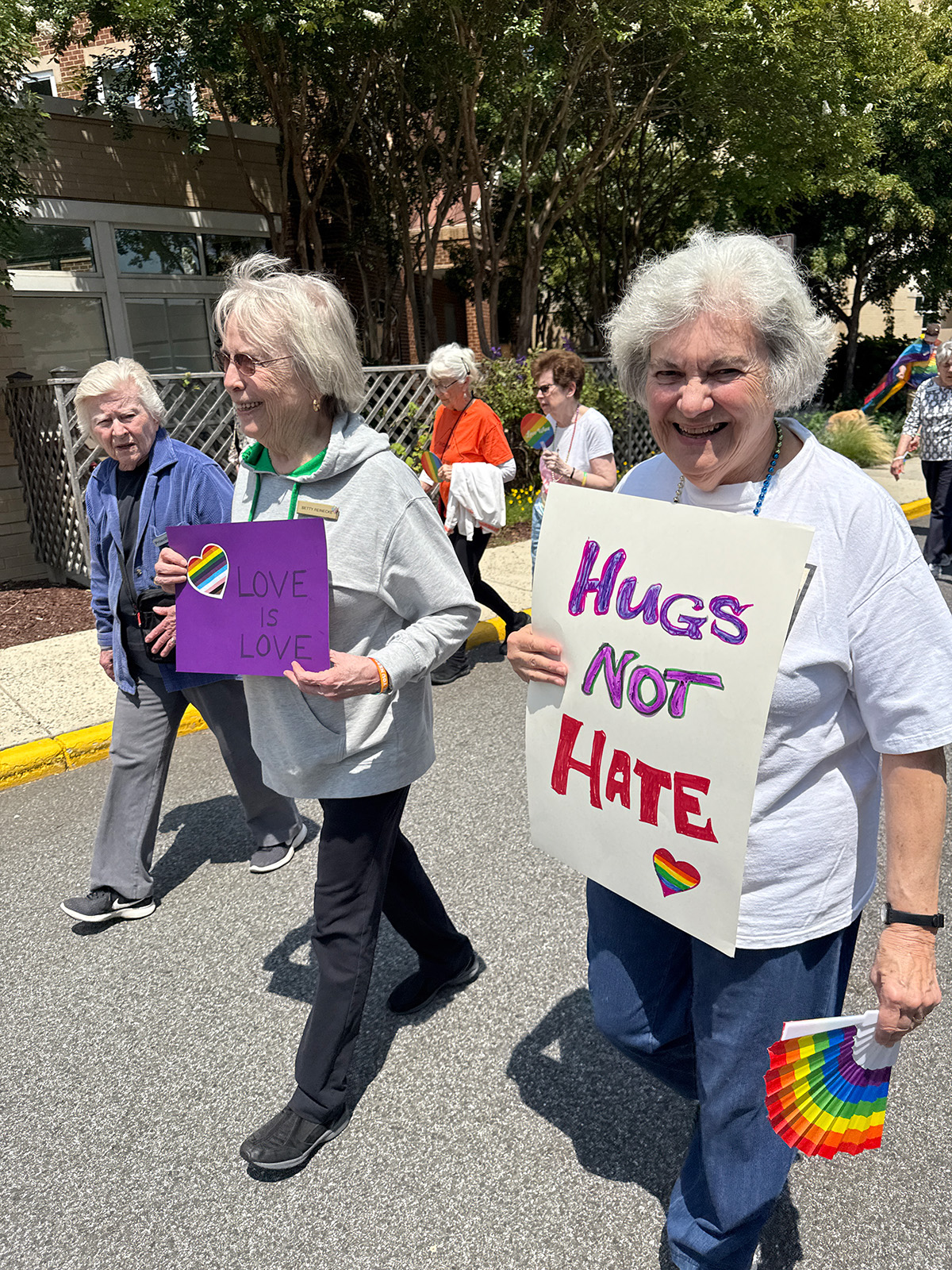

-

 U.S. Supreme Court4 days ago
U.S. Supreme Court4 days agoSupreme Court upholds ban on transgender care for minors
-

 Out & About4 days ago
Out & About4 days ago‘Lou’s Legacy’ to make TV debut next week
-

 World5 days ago
World5 days agoThese eight autistic LGBTQ people are making a difference
-
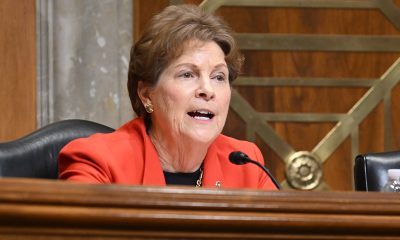
 Congress5 days ago
Congress5 days agoShaheen, Collins reintroduce bill prohibiting anti-LGBTQ discrimination in jury service

